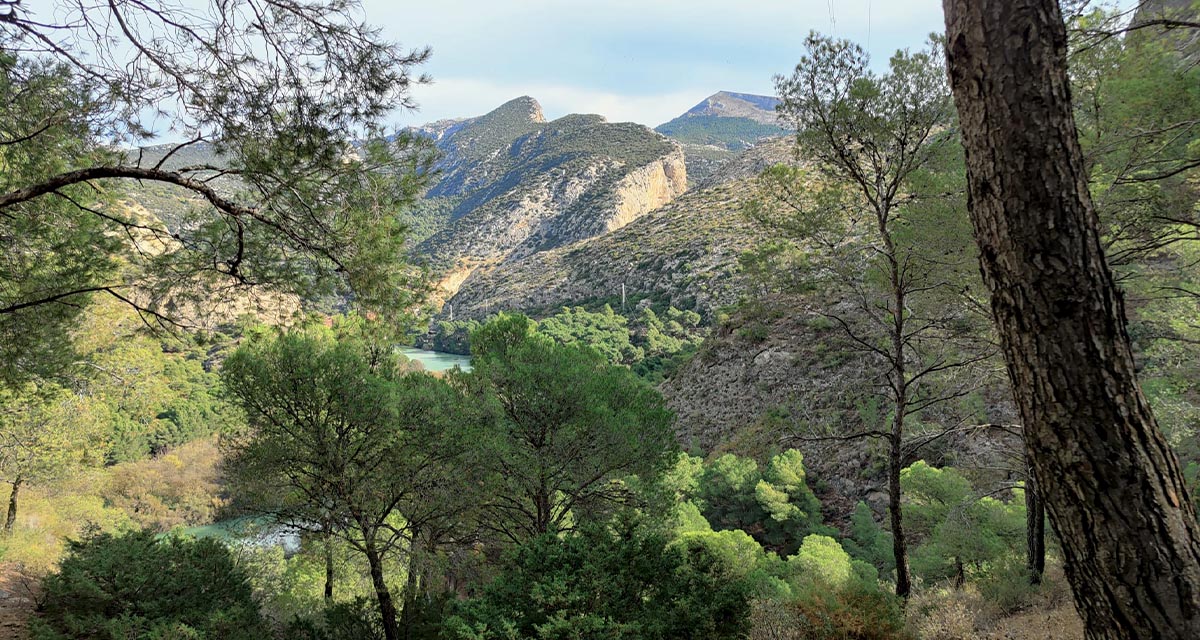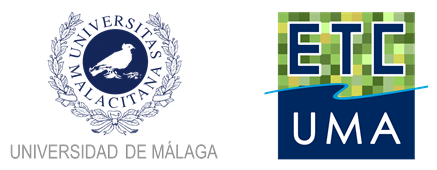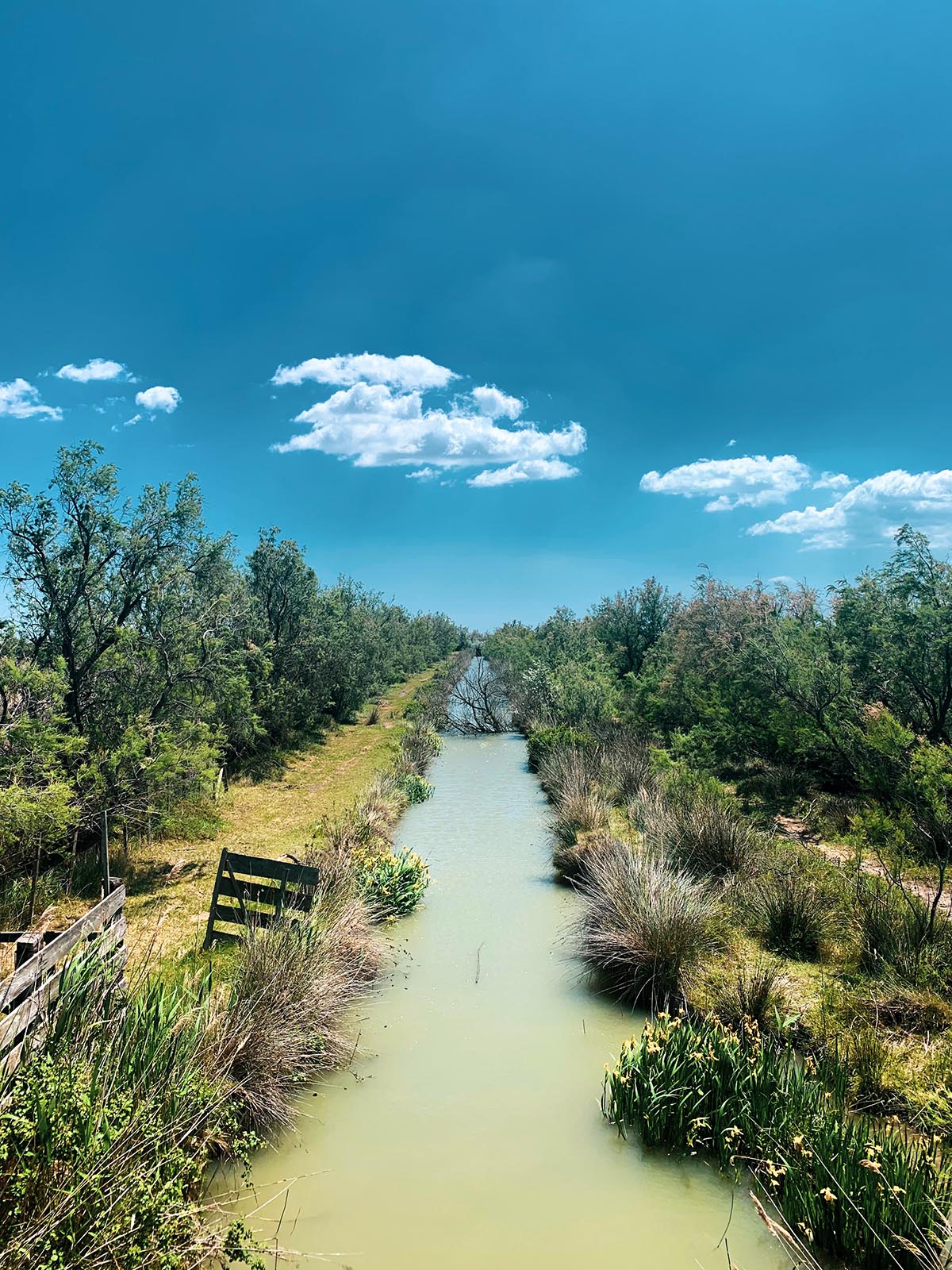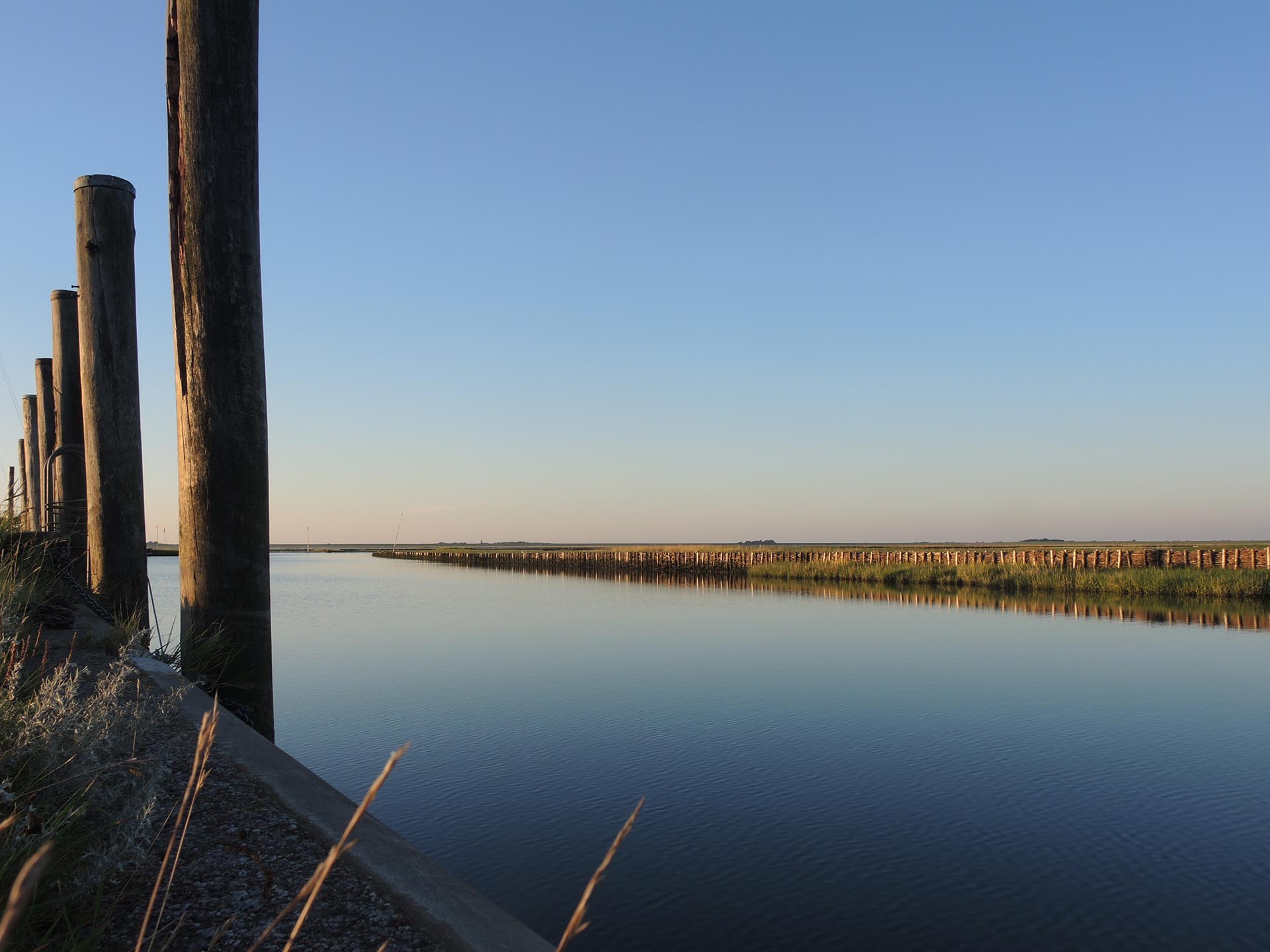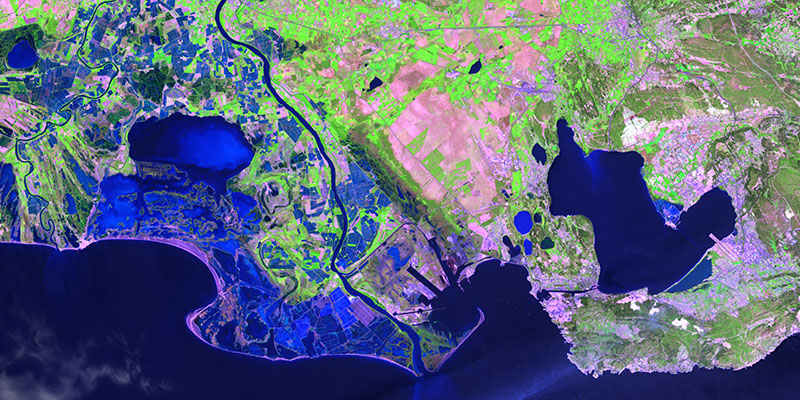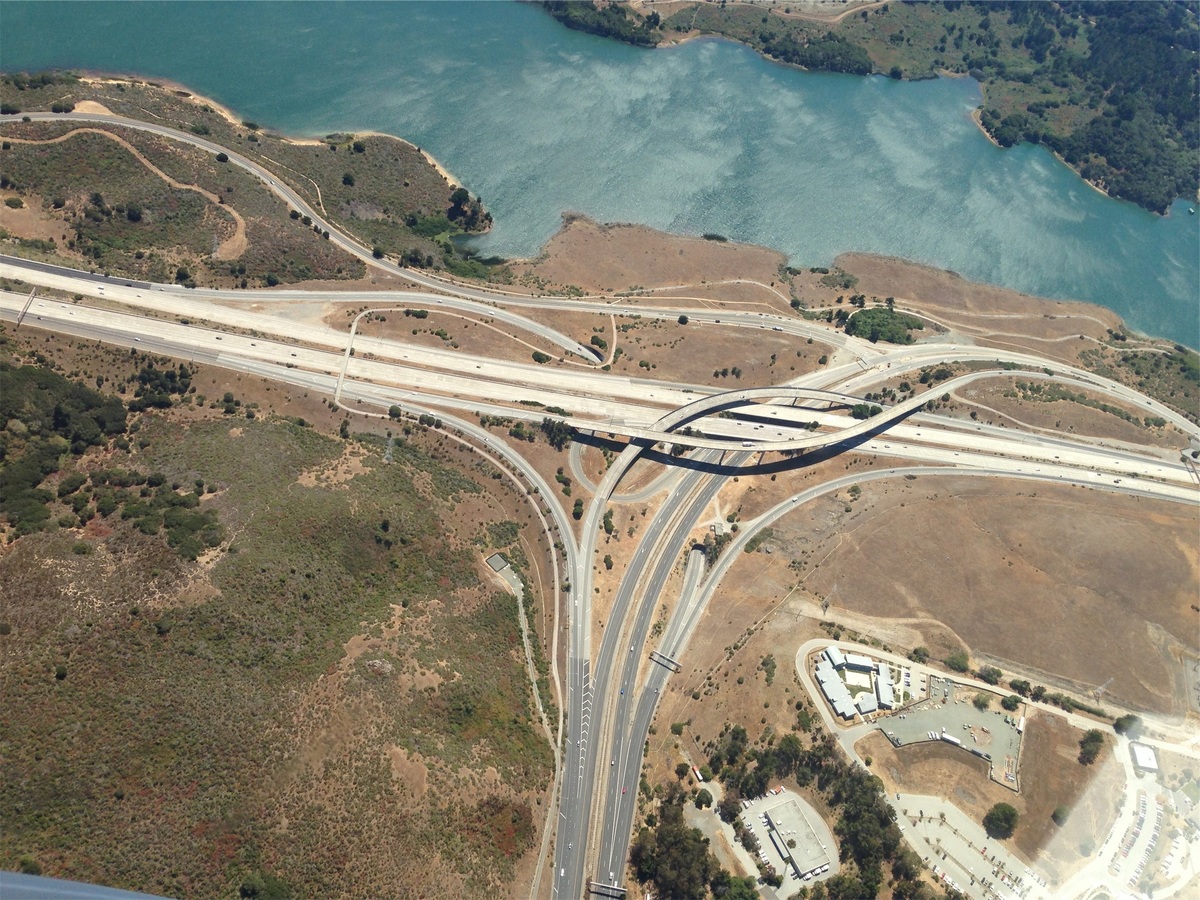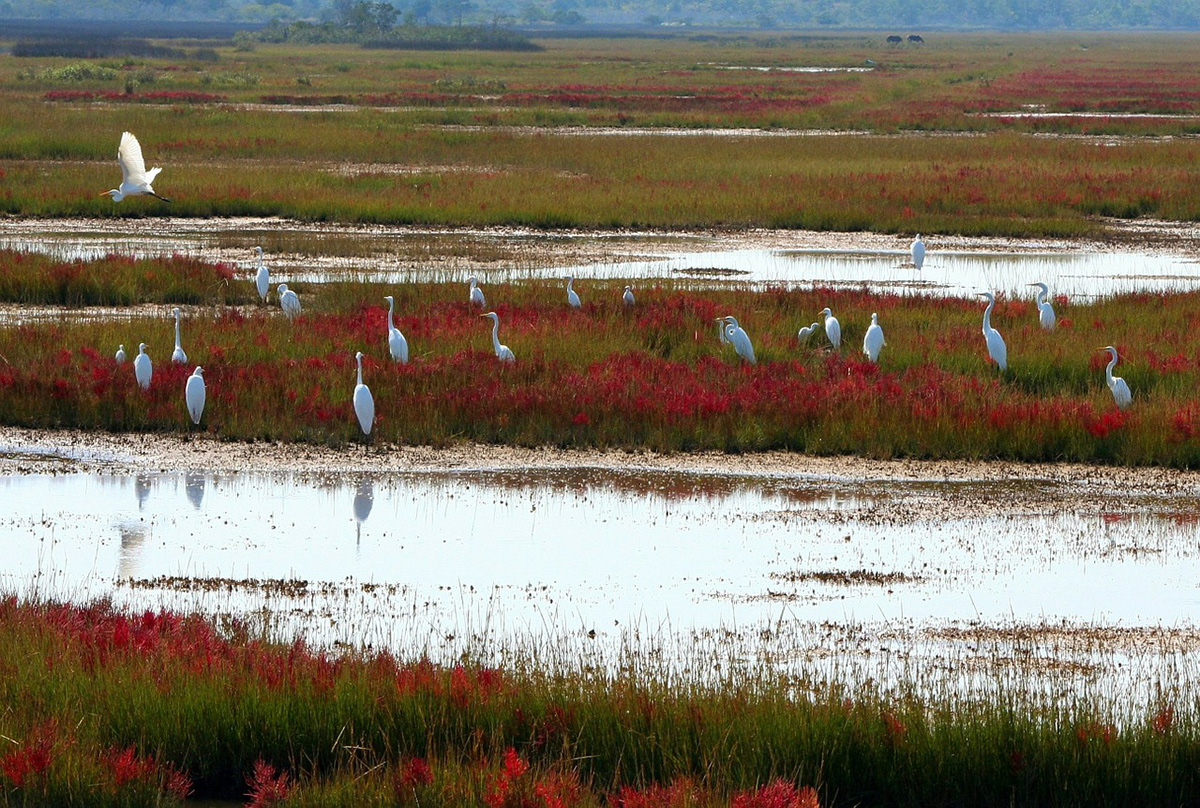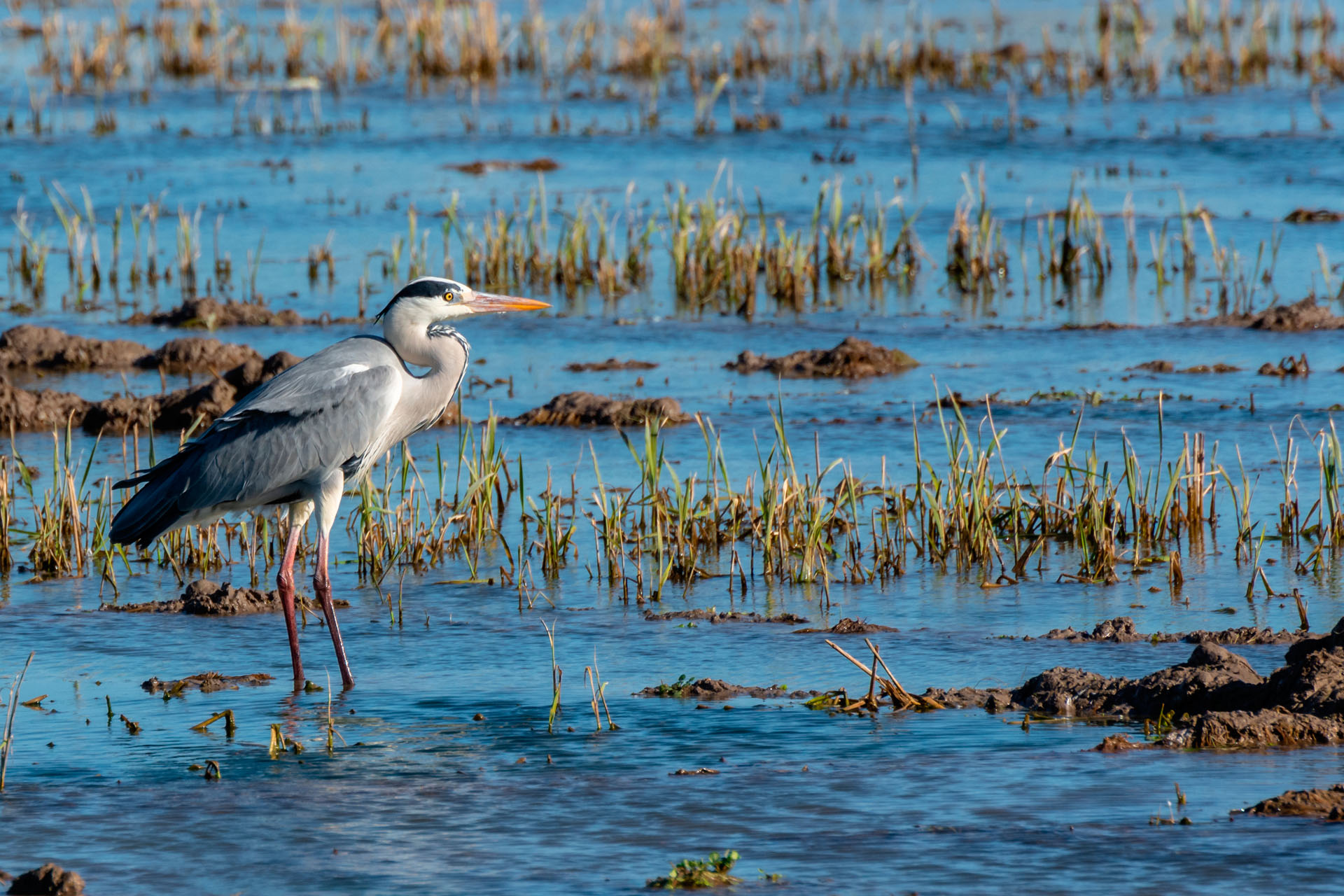Wetlands
Applying an ecosystem-based approach to water and land interfaces
CURRENT STATUS
Wetlands are key providers of water and essential services to life. Hotspots of biodiversity, they are also one of the fastest declining ecosystems worldwide. The threats against them continue to mount. An increase in the conversion of natural areas to urban and agricultural areas, infrastructure development, water diversion and pollution of air and water are some of the main factors causing their degradation and loss.
Classification of wetland habitats, information on their location, their ecological character and the services they give people, such as water sources, sources of food, storage of carbon and buffering or mitigating disaster risks, is often sparse and difficult to find or access. Despite some local restoration efforts in the last decades, tangible improvements in their condition and in the re-establishment of their ecological functions are far from being met. The result is a limited coverage of wetlands in policies and management practices.
OUR ACTIONS
We aim to enhance the knowledge on wetlands by highlighting their hydro-ecological features as a complex ecosystem and so ensure the inclusion of transitional habitats in regional management and monitoring practices. Through the promotion of wetlands as wider ecosystems in long-term mechanisms and governance models, our work aims at ensuring effective conservation and adaptive monitoring and restoration programmes that take into account ecosystemic hydro-ecological connections.
Our achievements and targets are
An improved nomenclature of wetland habitats in regional classification systems building on the Ramsar classification of wetlands.
An enhanced delimitation method of wetland ecosystems in Europe and the Mediterranean region through high resolution satellite imagery.
Clear Indicators to better support effective planning and adaptive management for wetland habitats.
A methodology for area-based mapping of wetlands.
Generating scientific evidence to influence policy and legal frameworks towards the full protection and restoration of wetland ecosystems and its components.
Analysis of carbon pools levels and sequestration potential by wetland habitats, how they can be affected by human use, and measures and actions in Europe to restore the capacity of wetlands to sequester carbon.
Featured outputs
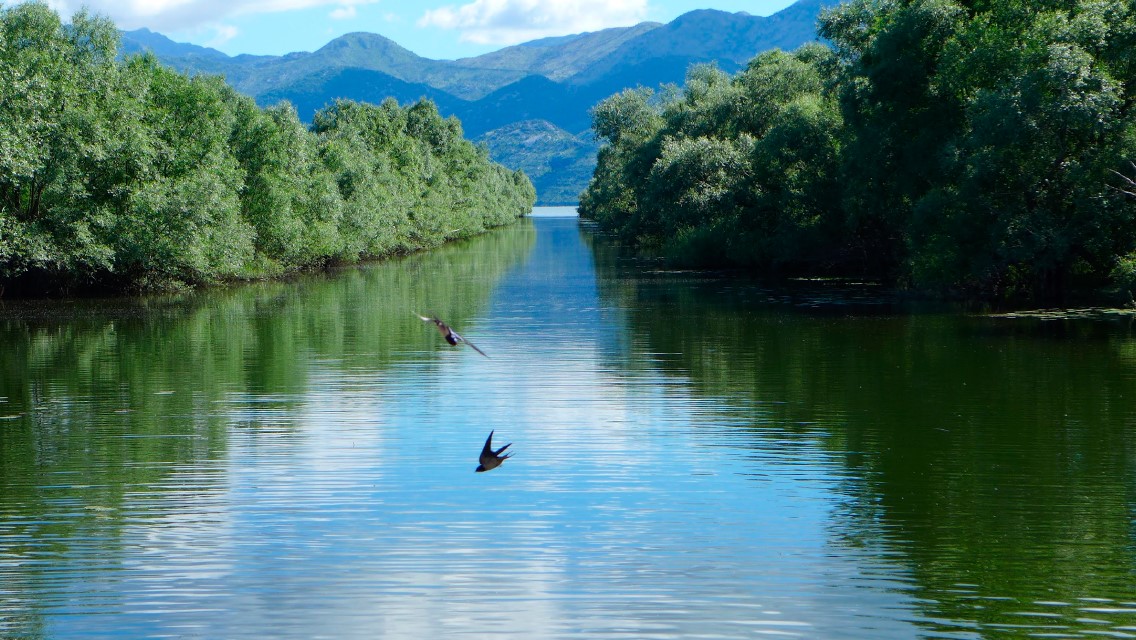
Mediterranean wetlands – their current state and ways to improve their conservation
The recent report entitled “Mapping and assessment of the state of wetland ecosystems: a Mediterranean perspective” led by ETC-UMA, in the frame of the Mediterranean Biodiversity Protection Community initiative co-funded by the EU Interreg Mediterranean programme, is the result of ...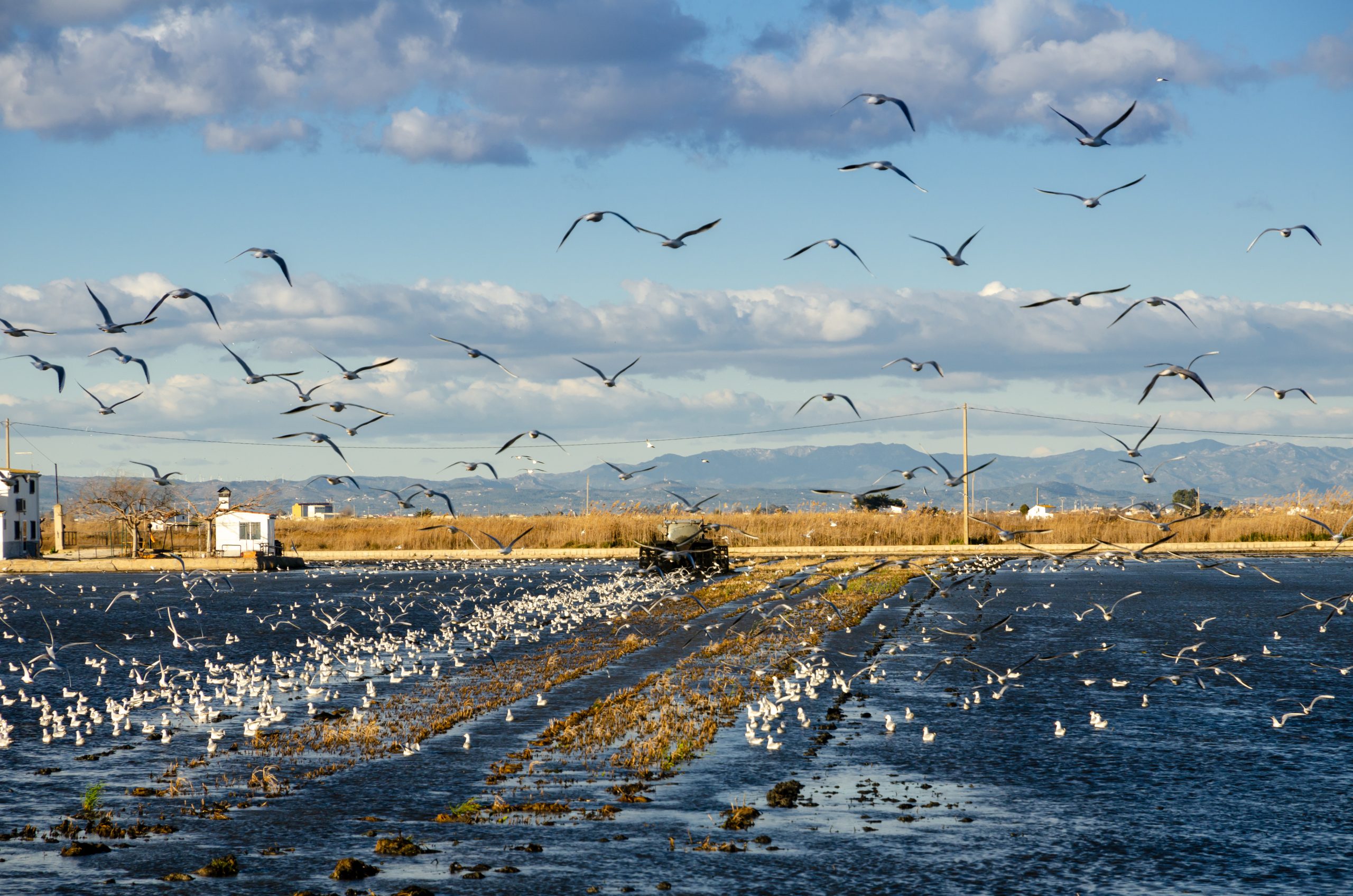
The role of healthy wetlands in fighting climate change
The new report developed by the ETC-UMA (University of Malaga), as partner of the European Topic Centre on Urban, Land and Soil Systems (ETC/ULS) has shed light on the role of healthy wetland habitats in the carbon cycle and the ...Resources
Journal Articles
Sánchez-Espinosa, A.; Schröder, C.
Land use and land cover mapping in wetlands one step closer to the ground: Sentinel-2 versus Landsat 8 Journal Article
In: Journal of Environmental Management, vol. 247, pp. 484-498, 2019.
@article{Sánchez-Espinosa2019b,
title = {Land use and land cover mapping in wetlands one step closer to the ground: Sentinel-2 versus Landsat 8},
author = {A. Sánchez-Espinosa and C. Schröder},
url = {https://www.sciencedirect.com/science/article/pii/S0301479719308850},
doi = {10.1016/j.jenvman.2019.06.084},
year = {2019},
date = {2019-10-01},
journal = {Journal of Environmental Management},
volume = {247},
pages = {484-498},
abstract = {Environmental studies with Landsat images have revealed many of the problems faced by wetland ecosystem, which are crucial for the conservation of biodiversity and the natural values of our planet. The study of LULC changes in wetlands through remote sensing constantly helps to identify and combat their main environmental threats improving the conservation of these natural habitats. Starting in mid-2015, the Sentinel-2 satellite opens new possibilities in the field of earth observation thanks to its higher spatial, spectral and temporal resolution becoming a powerful source of information for LULC monitoring in wetland areas. However, researchers may ask them selves to what extent Sentinel-2 is an improvement over Landsat 8 for general purposes. This research test if there is a real difference in the quality of the results delivered by both Sentinel-2 and Landsat 8 imagery when basic classification methods are applied.
The study uses Sentinel-2 and Landsat 8 imagery to produce LULC maps in a Mediterranean wetland area applying an object based classification method in order to compare the accuracy and reliability in the surface detected by both satellites. The results show that an object based classification using only the Sentinel-2 and Landsat 8 image information, without band indexes or ancillary data, offers very similar results for most LULC classes, being the overall accuracy around 87–88% with slightly better results when using Sentinel-2. Although using Sentinel-2 leads to an increase in file size and processing times, the analysis of certain LULC classes presents an improvement compared to Landsat 8, detecting more linear and small size elements with a better delineation of image features in the classified map. However, these improvements should not underestimate the value of Landsat imagery in the future since both satellites provide high precision information, so they can and should coexist and be used together to increase data availability in order to have the best possible results in remote sensing research.},
keywords = {},
pubstate = {published},
tppubtype = {article}
}
The study uses Sentinel-2 and Landsat 8 imagery to produce LULC maps in a Mediterranean wetland area applying an object based classification method in order to compare the accuracy and reliability in the surface detected by both satellites. The results show that an object based classification using only the Sentinel-2 and Landsat 8 image information, without band indexes or ancillary data, offers very similar results for most LULC classes, being the overall accuracy around 87–88% with slightly better results when using Sentinel-2. Although using Sentinel-2 leads to an increase in file size and processing times, the analysis of certain LULC classes presents an improvement compared to Landsat 8, detecting more linear and small size elements with a better delineation of image features in the classified map. However, these improvements should not underestimate the value of Landsat imagery in the future since both satellites provide high precision information, so they can and should coexist and be used together to increase data availability in order to have the best possible results in remote sensing research.
Weise, K.; Höfer, R.; Franke, J.; Guelmami, A.; Simonson, W.; Muro, J.; O'Connor, B.; Strauch, A.; Flink, S.; Eberle, J.; Mino, E.; Thulin, S.; Philipson, P.; van Valkengoed, E.; Truckenbrodt, J.; Zander, F.; Sánchez-Espinosa, A.; Schröder, C.; Thinfeld, F.; Fitoka, E.; Scott, E.; Ling, M.; Schwarz, M.; Kunz, I.; Thürmer, G.; Plasmeijer, A.; Hilarides, L.
Wetland extent tools for SDG 6.6.1 reporting from the Satellite-based Wetland Observation Service (SWOS) Journal Article
In: Remote Sensing of Environment, vol. 247, 2019.
@article{Weise2019,
title = {Wetland extent tools for SDG 6.6.1 reporting from the Satellite-based Wetland Observation Service (SWOS)},
author = {K. Weise and R. Höfer and J. Franke and A. Guelmami and W. Simonson and J. Muro and B. O'Connor and A. Strauch and S. Flink and J. Eberle and E. Mino and S. Thulin and P. Philipson and E. van Valkengoed and J. Truckenbrodt and F. Zander and A. Sánchez-Espinosa and C. Schröder and F. Thinfeld and E. Fitoka and E. Scott and M. Ling and M. Schwarz and I. Kunz and G. Thürmer and A. Plasmeijer and L. Hilarides},
url = {https://doi.org/10.1016/j.rse.2020.111892},
doi = {https://doi.org/10.1016/j.rse.2020.111892},
year = {2019},
date = {2019-09-15},
journal = {Remote Sensing of Environment},
volume = {247},
abstract = {Wetlands are the most fragile and threatened ecosystems worldwide, and also one of the most rapidly declining. At the same time wetlands are typically biodiversity hotspots and provide a range of valuable ecosystem services, such as water supply and purification, disaster risk reduction, climate change adaptation, and carbon sequestration.
Pressures on wetlands are likely to further intensify in the coming decades due to increased global demand for land and water, and due to climate change. Stakeholders at all levels of governance have to be involved to slow, stop and reverse these processes. However, the information they need on wetland extent, their ecological character, and their ecosystem services is often scattered, sparse and difficult to find and access.
The freely available Sentinel satellite data of the Copernicus Programme, as well as the Landsat archive, provide a comprehensive basis to map and inventory wetland areas (extent), to derive information on the ecological status, as well as long- and short-term trends in wetland characteristics. However, making use of these Earth Observation (EO) resources for robust and standardized wetland monitoring requires expert knowledge on often complex data processing techniques, which impedes practical implementation. In this respect, the Satellite-based Wetland Observation Service (SWOS), a Horizon 2020 funded project (www.swos-service.eu) has developed and made disseminated monitoring approaches based on EO data, specifically designed for less experienced satellite data users.
The SWOS monitoring tools aim at assisting countries in conducting national wetland inventories for their Sustainable Development Goals (SDG) reporting and monitoring obligations, and additionally facilitates other monitoring obligations such as those required by the Ramsar Convention and supports decision-making in local conservation activities. The four main components of the SWOS approach are: map and indicator production; software development; capacity building; and initializing the GEO Wetlands Community Portal. Wetland managers and data analysists from more than fifty wetland sites and river basins across Europe, the Middle East, and Africa investigated the benefits and limitations of this EO-based wetland mapping and monitoring approach.
We describe research that applies the SWOS tools to test their potential for the mapping of wetlands in a case study based in Albania, and show its effectiveness to derive metrics relevant to the monitoring of SDG indicator 6.6.1.},
keywords = {},
pubstate = {published},
tppubtype = {article}
}
Pressures on wetlands are likely to further intensify in the coming decades due to increased global demand for land and water, and due to climate change. Stakeholders at all levels of governance have to be involved to slow, stop and reverse these processes. However, the information they need on wetland extent, their ecological character, and their ecosystem services is often scattered, sparse and difficult to find and access.
The freely available Sentinel satellite data of the Copernicus Programme, as well as the Landsat archive, provide a comprehensive basis to map and inventory wetland areas (extent), to derive information on the ecological status, as well as long- and short-term trends in wetland characteristics. However, making use of these Earth Observation (EO) resources for robust and standardized wetland monitoring requires expert knowledge on often complex data processing techniques, which impedes practical implementation. In this respect, the Satellite-based Wetland Observation Service (SWOS), a Horizon 2020 funded project (www.swos-service.eu) has developed and made disseminated monitoring approaches based on EO data, specifically designed for less experienced satellite data users.
The SWOS monitoring tools aim at assisting countries in conducting national wetland inventories for their Sustainable Development Goals (SDG) reporting and monitoring obligations, and additionally facilitates other monitoring obligations such as those required by the Ramsar Convention and supports decision-making in local conservation activities. The four main components of the SWOS approach are: map and indicator production; software development; capacity building; and initializing the GEO Wetlands Community Portal. Wetland managers and data analysists from more than fifty wetland sites and river basins across Europe, the Middle East, and Africa investigated the benefits and limitations of this EO-based wetland mapping and monitoring approach.
We describe research that applies the SWOS tools to test their potential for the mapping of wetlands in a case study based in Albania, and show its effectiveness to derive metrics relevant to the monitoring of SDG indicator 6.6.1.
Hatziiordanou, L.; Fitoka, E.; Hadjicharalampous, E.; Votsi, N. E.; Palaskas, D.; Abdul-Malak, D.
In: One Ecosystem, vol. 4, no. e32704, 2019.
@article{Hatziiordanou2019,
title = {Indicators for mapping and assessment of ecosystem condition and of the ecosystem service habitat maintenance in support of the EU Biodiversity Strategy to 2020},
author = {L. Hatziiordanou and E. Fitoka and E. Hadjicharalampous and N.E. Votsi and D. Palaskas and D. Abdul-Malak},
url = {https://oneecosystem.pensoft.net/article/32704/},
doi = {10.3897/oneeco.4.e32704},
year = {2019},
date = {2019-06-13},
journal = {One Ecosystem},
volume = {4},
number = {e32704},
abstract = {A systematic approach to map and assess the “maintenance of nursery populations and habitats” ecosystem service (ES) (hereinafter called “habitat maintenance”) has not yet emerged. In this article, we present an ecosystem service framework implementation at landscape level, by proposing an approach for calculating and combining a series of indicators with spatial modelling techniques. Necessary conceptual elements for this approach are: a) ecosystem condition, b) supply and demand of the targeted ecosystem service and c) spatial relationships between the Service Providing Units (SPU) and the Service Connecting Units (SCU). Ecosystem condition is quantified and mapped based on two indicators, the Biodiversity State and the Anthropogenic Impact. Quantification and mapping of supply and demand are based on the hypothesis that high supply can be activated in strictly protected areas and that a demand is localised in the Natura 2000 sites (N2K), considering them as the Service Benefit Areas (SBA). Wetlands are assessed as SCU between the SBA and the landscape areas where the habitat maintenance ES is supplied. By assessing wetlands as SCU, we intent to highlight their role as biodiversity stepping stones and as green infrastructures. Overall, we conclude that the EU biodiversity policy demand for no net loss and for a coherent N2K network can be met by enhancing the delivery of the habitat maintenance ES. This approach can assist policy-makers in prioritisation of conservation and restoration targets, in line with the EU biodiversity strategy to 2020 and the preparation of the post-2020 Strategy.},
keywords = {},
pubstate = {published},
tppubtype = {article}
}
Maes, J.
An indicator framework for assessing ecosystem services in support of the EU Biodiversity Strategy to 2020 Journal Article
In: Ecosystem Services, vol. 17, pp. 14-23, 2016.
@article{etal.al.2016,
title = {An indicator framework for assessing ecosystem services in support of the EU Biodiversity Strategy to 2020},
author = {J. Maes et al.},
url = {https://www.sciencedirect.com/science/article/pii/S2212041615300504},
doi = {https://doi.org/10.1016/j.ecoser.2015.10.023},
year = {2016},
date = {2016-02-01},
journal = {Ecosystem Services},
volume = {17},
pages = {14-23},
abstract = {In the EU, the mapping and assessment of ecosystems and their services, abbreviated to MAES, is seen as a key action for the advancement of biodiversity objectives, and also to inform the development and implementation of related policies on water, climate, agriculture, forest, marine and regional planning. In this study, we present the development of an analytical framework which ensures that consistent approaches are used throughout the EU. It is framed by a broad set of key policy questions and structured around a conceptual framework that links human societies and their well-being with the environment. Next, this framework is tested through four thematic pilot studies, including stakeholders and experts working at different scales and governance levels, which contributed indicators to assess the state of ecosystem services. Indicators were scored according to different criteria and assorted per ecosystem type and ecosystem services using the common international classification of ecosystem services (CICES) as typology. We concluded that there is potential to develop a first EU wide ecosystem assessment on the basis of existing data if they are combined in a creative way. However, substantial data gaps remain to be filled before a fully integrated and complete ecosystem assessment can be carried out.},
keywords = {},
pubstate = {published},
tppubtype = {article}
}
Sánchez-Espinosa, A.; Abdul-Malak, D.; Guelmami, A.; Perennou, C.
Development of an Indicator to Monitor Mediterranean Wetlands Journal Article
In: Plos One, vol. 10, no. 3, 2015.
@article{Sánchez-Espinosa2015,
title = {Development of an Indicator to Monitor Mediterranean Wetlands},
author = {A. Sánchez-Espinosa and D. Abdul-Malak and A. Guelmami and C. Perennou},
url = {http://journals.plos.org/plosone/article?id=10.1371/journal.pone.0122694},
doi = {https://doi.org/10.1371/journal.pone.0122694},
year = {2015},
date = {2015-03-31},
journal = {Plos One},
volume = {10},
number = {3},
abstract = {Wetlands are sensitive ecosystems that are increasingly subjected to threats from anthropogenic factors. In the last decades, coastal Mediterranean wetlands have been suffering considerable pressures from land use change, intensification of urban growth, increasing tourism infrastructure and intensification of agricultural practices. Remote sensing (RS) and Geographic Information Systems (GIS) techniques are efficient tools that can support monitoring Mediterranean coastal wetlands on large scales and over long periods of time. The study aims at developing a wetland indicator to support monitoring Mediterranean coastal wetlands using these techniques. The indicator makes use of multi-temporal Landsat images, land use reference layers, a 50m numerical model of the territory (NMT) and Corine Land Cover (CLC) for the identification and mapping of wetlands. The approach combines supervised image classification techniques making use of vegetation indices and decision tree analysis to identify the surface covered by wetlands at a given date. A validation process is put in place to compare outcomes with existing local wetland inventories to check the results reliability. The indicator´s results demonstrate an improvement in the level of precision of change detection methods achieved by traditional tools providing reliability up to 95% in main wetland areas. The results confirm that the use of RS techniques improves the precision of wetland detection compared to the use of CLC for wetland monitoring and stress the strong relation between the level of wetland detection and the nature of the wetland areas and the monitoring scale considered.},
keywords = {},
pubstate = {published},
tppubtype = {article}
}
Technical Reports
del Mar Otero, M.; Camacho, A.; Abdul-Malak, D.; Kampa, E.; Scheid, A.; Elkina, E.
RESTORE4Cs Policy Brief: How can coastal wetlands help achieve EU climate goals? Technical Report
2024.
@techreport{nokey,
title = {RESTORE4Cs Policy Brief: How can coastal wetlands help achieve EU climate goals?},
author = {M. del Mar Otero and A. Camacho and D. Abdul-Malak and E. Kampa and A. Scheid and E. Elkina},
url = {https://www.etc.uma.es/wp-content/uploads/R4Cs-Policy-Brief-EU-climate-goals.pdf},
year = {2024},
date = {2024-09-01},
urldate = {2024-09-01},
abstract = {The first RESTORE4Cs Policy Brief of RESTORE4Cs, “How can coastal wetlands help achieve EU climate goals?“, highlights the importance of European coastal wetlands for reducing Greenhouse Gas emissions.
The key messages of the first RESTORE4Cs Policy Brief include:
1) Coastal wetlands are important natural carbon stores, given their capacity to sequester carbon efficiently while emitting relatively less methane – a Greenhouse Gas (GHG) with much higher warming potential than CO2 at medium term.
2) When well-preserved or restored, coastal wetlands deliver key ecosystem services and have positive impacts on the environment and society. The conservation and restoration of coastal wetlands in Europe is therefore a cost-effective climate mitigation strategy in line with the European Climate Law and can contribute to reach climate neutrality by 2050.
3) Robust carbon certification sche mes can offer additional tools to finance projects for protecting and restoring European coastal wetlands. Coastal wetland protection and restoration activities that contribute to reduce GHG emissions, sequester carbon and provide long-term storage should qualify and be recognised under the EU Certification Framework for Carbon Removals. These measures provide an opportunity for unlocking new financial sources for wetland conservation and restoration while ensuring ecological and social benefits with the necessary safeguards in place.
4) Actions to protect and restore carbon sinks – including the sustainable management and restoration of wetlands – are qualified by the EU Taxonomy Regulation as ‘environmentally sustainable’ economic activities. These actions can create incentives for companies that aim to become more climate-friendly and attract new investments for restoration by labelling certain activities as ‘environmentally friendly’ or reducing their financial transaction costs.},
keywords = {},
pubstate = {published},
tppubtype = {techreport}
}
The key messages of the first RESTORE4Cs Policy Brief include:
1) Coastal wetlands are important natural carbon stores, given their capacity to sequester carbon efficiently while emitting relatively less methane – a Greenhouse Gas (GHG) with much higher warming potential than CO2 at medium term.
2) When well-preserved or restored, coastal wetlands deliver key ecosystem services and have positive impacts on the environment and society. The conservation and restoration of coastal wetlands in Europe is therefore a cost-effective climate mitigation strategy in line with the European Climate Law and can contribute to reach climate neutrality by 2050.
3) Robust carbon certification sche mes can offer additional tools to finance projects for protecting and restoring European coastal wetlands. Coastal wetland protection and restoration activities that contribute to reduce GHG emissions, sequester carbon and provide long-term storage should qualify and be recognised under the EU Certification Framework for Carbon Removals. These measures provide an opportunity for unlocking new financial sources for wetland conservation and restoration while ensuring ecological and social benefits with the necessary safeguards in place.
4) Actions to protect and restore carbon sinks – including the sustainable management and restoration of wetlands – are qualified by the EU Taxonomy Regulation as ‘environmentally sustainable’ economic activities. These actions can create incentives for companies that aim to become more climate-friendly and attract new investments for restoration by labelling certain activities as ‘environmentally friendly’ or reducing their financial transaction costs.
MBPC-PANACeA,
Mediterranean ecosystem restoration sites Technical Report
2022.
@techreport{MBPC-PANACeA2022,
title = {Mediterranean ecosystem restoration sites},
author = {MBPC-PANACeA},
url = {https://biodiversity.uma.es/wp-content/uploads/restoration_sites_web_opt.pdf},
year = {2022},
date = {2022-11-01},
urldate = {2022-11-01},
abstract = {This report was led by the European Topic Centre on Spatial Analysis and Synthesis (ETC-UMA) in the frame of the Mediterranean Biodiversity Protection Community initiative (MBPC) co-funded by the EU Interreg Mediterranean programme and is the result of a close consultation with the FAO-led Task Force on Best Practices. This report is the result of the collaborative efforts of many institutional partners, projects and individuals that made available information on their experience on restoration practices across the Mediterranean for wider dissemination. For each practice, the contributor’s name can be found as contact in the full annex description.},
keywords = {},
pubstate = {published},
tppubtype = {techreport}
}
Trombetti, M.; Abdul-Malak, D.; Sánchez-Espinosa, A.; Guelmami, A.; García, N.; Fitoka, E.
Mapping and assessment of the state of wetland ecosystems: A Mediterranean perspective Technical Report
2022.
@techreport{Trombetti2022,
title = {Mapping and assessment of the state of wetland ecosystems: A Mediterranean perspective},
author = {M. Trombetti and D. Abdul-Malak and A. Sánchez-Espinosa and A. Guelmami and N. García and E. Fitoka},
editor = {Interreg Mediterranean Biodiversity Protection Community project},
url = {https://www.etc.uma.es/wp-content/uploads/Report_Mapping_and_assessment_of_the_state_of_wetland_ecosystems_2022.pdf},
year = {2022},
date = {2022-06-01},
urldate = {2022-06-01},
abstract = {The Pan-Mediterranean wetland ecosystem map fills a major knowledge gap in the region by setting a Mediterranean-wide knowledge base on wetland ecosystems following the Ramsar definition of wetlands. The wetland ecosystem mapping is complemented by the assessment of wetland biodiversity conditions that aims to highlight priority areas for potential conservation and restoration actions in the region, and to support the regional efforts in advocating for effective wetland management and nature-based solutions in the Mediterranean region. The outputs of this activity include (i) a Pan-Mediterranean wetland ecosystem knowledge base, and (ii) an assessment of their condition that will be used to raise awareness and advocate for a change in wetland management that promotes effective protection, conservation and restoration. The outputs also support regional and national inventories, filling a major regional gap locating Mediterranean wetland habitats, and feed regional and global agendas, namely the EU Biodiversity Strategy to 2030, the Mediterranean Strategy for Sustainable development as well as the Ramsar Convention.},
keywords = {},
pubstate = {published},
tppubtype = {techreport}
}
Abdul-Malak, D.; Marín, A. I.; Trombetti, M.; San-Román, S.
Carbon pools and sequestration potential of wetlands in the European Union Technical Report
2021, ISBN: 978-3-200-07433-0.
@techreport{Abdul-Malak2021,
title = {Carbon pools and sequestration potential of wetlands in the European Union},
author = {D. Abdul-Malak and A. I. Marín and M. Trombetti and S. San-Román},
editor = {European Topic Centre on Urban, Land and Soil Systems},
url = {https://www.eionet.europa.eu/etcs/etc-uls/products/etc-uls-reports/etc-uls-report-10-2021-carbon-pools-and-sequestration-potential-of-wetlands-in-the-european-union},
isbn = {978-3-200-07433-0},
year = {2021},
date = {2021-09-01},
urldate = {2021-09-01},
abstract = {Wetland ecosystems as defined by the Ramsar convention host a wide variety of wetland habitats across terrestrial, coastal and marine environments. When in good condition, wetland habitats provide many societal benefits and values, among others, they play a crucial role in the carbon cycle because of their capacities to limit the availability of oxygen to soil microbes and decomposition of organic matter. Policies and practices do not sufficiently consider these interconnections and interdependencies in Europe yet due to the fragmented consideration of this ecosystem in their schemes. The findings of this report argue that healthy European wetland habitats have an enormous capacity to contribute to carbon neutrality objectives in Europe. Across the wide array of European ecosystems they belong to, wetland habitats have a role in contributing to the carbon cycle. The most meaningful European wetland habitats to contribute to carbon storage include well-functioning salt marshes, healthy mires, bogs and fens as well as riparian, fluvial and swamp forests. Furthermore, when healthy, terrestrial wetlands namely mires, bogs and fens (where peatlands underly), followed by riparian, fluvial and swamp forests as well as inland marshes ensure a high carbon sequestration potential. If kept in a good condition or restored, the EU wetland related carbon stock capacity of their overall area in Europe (EU 27 and the UK) is estimated to be between 12 - 31 Gt CO2-eq, corresponding to an overall value ranging between 3 and 8 years of EU GHG emissions1. Whereas the Carbon sequestration potential of healthy EU Wetlands per year is calculated to range between 24 and 144 Mt CO2 eq yr-1 (24,352 and 14,3719 kt CO2 eq yr-1), being a quantity that contributes to “neutralising” between 1 and 4 % of the total GHG emissions registered in the EU27 and the UK (according to 2018 reference year for reported emission). These findings should trigger wetland conservation and restoration to become a high priority for the EU to support reaching climate neutrality by 2050. Climate reporting systems require Parties to report on anthropogenic emissions and removals of greenhouse gases which includes reporting heavily modified peatland habitats only partially and dominantly as a net carbon emitter. Using ecosystem-based approaches to managing reported peatland habitats and re-establishing their ecosystem functioning do transform many of them from climate ‘heaters’ (carbon net sources) into climate ‘coolers’ (carbon net sinks).},
keywords = {},
pubstate = {published},
tppubtype = {techreport}
}
Maes, J.; Erhard, M.; Conde, S.; Rodriguez-Vallecillo, S.; Barredo-Cano, J. I.; Paracchini, M.; Abdul-Malak, D.; Trombetti, M.; Vigiak, O.; Zulian, G.; Addamo, A.; Grizzetti, B.; Somma, F.; Hagyo, A.; Vogt, P.; Polce, C.; Jones, A.; Carré, A.; Hauser, R.
EU ecosystem assessment - Summary for policymakers Technical Report
Joint Research Center (JRC) 2021, ISSN: 1831-9424.
@techreport{Maes2021,
title = {EU ecosystem assessment - Summary for policymakers},
author = {J. Maes and M. Erhard and S. Conde and S. Rodriguez-Vallecillo and J.I. Barredo-Cano and M. Paracchini and D. Abdul-Malak and M. Trombetti and O. Vigiak and G. Zulian and A. Addamo and B. Grizzetti and F. Somma and A. Hagyo and P. Vogt and C. Polce and A. Jones and A. Carré and R. Hauser
},
editor = {Publications Office of the European Union},
url = {https://publications.jrc.ec.europa.eu/repository/handle/JRC123783},
doi = {10.2760/190829},
issn = {1831-9424},
year = {2021},
date = {2021-06-01},
institution = {Joint Research Center (JRC)},
abstract = {Europe’s ecosystems, on which we depend for food, timber, clean air, clean water, climate regulation and recreation, suffer from unrelenting pressures caused by intensive land or sea use, climate change, pollution, overexploitation and invasive alien species. Ensuring that ecosystems achieve or maintain a healthy state or a good condition is thus a key requirement to secure the sustainability of human activities and human well-being. This guiding principle applies for all ecosystems including marine and freshwater ecosystems, natural and semi-natural areas such as wetlands or heathlands but also managed ecosystems such as forests, farmlands and urban green spaces. Knowledge about ecosystem condition, the factors that improve or decline that condition, and the impacts on ecosystem services, with the benefits they deliver to people, is key to effective management, decision-making and policy design. Such an understanding helps target actions for conservation or restoration and more broadly sustainable use. This ecosystem assessment extends and complements the knowledge we have about the state and trends of ecosystems reported under the EU environmental legislation. The conservation of habitats and species as well as the environmental ambitions on freshwater and marine ecosystems have a well-defined thematic and geographical scope. This assessment goes beyond covering the entire terrestrial and marine territory of the EU and in many cases provides more spatially explicit information. Ecosystems inside and outside protected areas such as coastal and inland wetlands and forests contribute to the wellbeing of people through ecosystem services. Despite their importance, they are often heavily impacted and bringing these systems back in a good condition is a key objective for a more sustainable planet. But also human dominated ecosystems such as farmlands and urban green spaces are important providers of provisioning, regulating and cultural ecosystem services and can host remarkable levels of biodiversity that are at the basis of ecosystem services. These ecosystems should not be ignored when considering solutions to bend the curve of biodiversity loss. Consequently, this assessment brings together for the first time EU wide and commonly agreed data sets that can be used to assess the state and trends of ecosystems and their services as well as the pressures and their trends they are exposed to. This is particularly important to understand where and how much ecosystems are degraded and threatened so as to guide priority and cost-effective restoration efforts.},
keywords = {},
pubstate = {published},
tppubtype = {techreport}
}
Maes, J.; Teller, A.; Erhard, M.; Condé, S.; Vallecillo, S.; Barredo, J. I.; Paracchini, M. L.; Abdul-Malak, D.; Trombetti, M.; Vigiak, O.; Zulian, G.; Addamo, A. M.; Grizzetti, B.; Somma, F.; Hagyo, A.; Vogt, P.; Polce, C.; Jones, A.; Marin, A. I.; Ivits, E.; Mauri, A.; Rega, C.; Czúcz, B.; Ceccherini, G.; Pisoni, E.; Ceglar, A.; de Palma, P.; Cerrani, I.; Meroni, M.; Caudullo, G.; Lugato, E.; Vogt, J. V.; Spinoni, J.; Cammalleri, C.; Bastrup-Birk, A.; Miguel, J. San; San-Román, S.; Kristensen, P.; Christiansen, T.; Zal, N.; de Roo, A.; Cardoso, A. C.; Pistocchi, A.; del Barrio Alvarellos, I.; Tsiamis, K.; Gervasini, E.; Deriu, I.; la Notte, A.; Viñas, R. Abad; Vizzarri, M.; Camia, A.; Robert, N.; Kakoulaki, G.; Bendito, E. Garcia; Panagos, P.; Ballabio, C.; Scarpa, S.; Montanarella, L.; Orgiazzi, A.; Ugalde, O. Fernandez; Santos-Martín, F.
Mapping and Assessment of Ecosystems and their Services: An EU ecosystem assessment Technical Report
Publications Office of the European Union 2020, ISBN: 978-92-76-17833-0.
@techreport{Maes2020,
title = {Mapping and Assessment of Ecosystems and their Services: An EU ecosystem assessment},
author = {J. Maes and A. Teller and M. Erhard and S. Condé and S. Vallecillo and J.I. Barredo and M.L. Paracchini and D. Abdul-Malak and M. Trombetti and O. Vigiak and G. Zulian and A.M. Addamo and B. Grizzetti and F. Somma and A. Hagyo and P. Vogt and C. Polce and A. Jones and A. I. Marin and E. Ivits and A. Mauri and C. Rega and B. Czúcz and G. Ceccherini and E. Pisoni and A. Ceglar and P. de Palma and I. Cerrani and M. Meroni and G. Caudullo and E. Lugato and J.V. Vogt and J. Spinoni and C. Cammalleri and A. Bastrup-Birk and J. San Miguel and S. San-Román and P. Kristensen and T. Christiansen and N. Zal and A. de Roo and A.C. Cardoso and A. Pistocchi and I. del Barrio Alvarellos and K. Tsiamis and E. Gervasini and I. Deriu and A. la Notte and R. Abad Viñas and M. Vizzarri and A. Camia and N. Robert and G. Kakoulaki and E. Garcia Bendito and P. Panagos and C. Ballabio and S. Scarpa and L. Montanarella and A. Orgiazzi and O. Fernandez Ugalde and F. Santos-Martín},
url = {http://publications.jrc.ec.europa.eu/repository/handle/JRC120383},
doi = {10.2760/757183},
isbn = {978-92-76-17833-0},
year = {2020},
date = {2020-10-01},
urldate = {2020-10-01},
institution = {Publications Office of the European Union},
abstract = {This report presents an ecosystem assessment covering the total land area of the EU as well as the EU marine regions. The assessment is carried out by Joint Research Centre, European Environment Agency, DG Environment, and the European Topic Centres on Biological Diversity and on Urban, Land and Soil Systems. This report constitutes a knowledge base which can support the evaluation of the 2020 biodiversity targets. It also provides a data foundation for future assessments and policy developments, in particular with respect to the ecosystem restoration agenda for the next decade (2020-2030). The report presents an analysis of the pressures and condition of terrestrial, freshwater and marine ecosystems using a single, comparable methodology based on European data on trends of pressures and condition relative to the policy baseline 2010. The following main conclusions are drawn: - Pressures on ecosystems exhibit different trends. - Land take, atmospheric emissions of air pollutants and critical loads of nitrogen are decreasing but the absolute values of all these pressures remain too high. - Impacts from climate change on ecosystems are increasing. - Invasive alien species of union concern are observed in all ecosystems, but their impact is particularly high in urban ecosystems and grasslands. - Pressures from overfishing activities and marine pollution are still high. - In the long term, air and freshwater quality is improving. - In forests and agroecosystems, which represent over 80% of the EU territory, there are improvements in structural condition indicators (biomass, deadwood, area under organic farming) relative to the baseline year 2010 but some key bio-indicators such as tree-crown defoliation continue to increase. This indicates that ecosystem condition is not improving. - Species-related indicators show no progress or further declines, particularly in agroecosystems. The analysis of trends in ecosystem services concluded that the current potential of ecosystems to deliver timber, protection against floods, crop pollination, and nature-based recreation is equal to or lower than the baseline value for 2010. At the same time, the demand for these services has significantly increased. A lowered potential in combination with a higher demand risks to further decrease the condition of ecosystems and their contribution to human well-being. Despite the wide coverage of environmental legislation in the EU, there are still large gaps in the legal protection of ecosystems. On land, 76% of the area of terrestrial ecosystems, mainly forests, agroecosystems and urban ecosystems, are excluded from a legal designation under the Bird and Habitat Directives. Freshwater and marine ecosystems are subject to specific protection measures under the Water Framework and Marine Strategy Framework Directives. The condition of ecosystems that are under legal designation is unfavourable. More efforts are needed to bend the curve of biodiversity loss and ecosystem degradation and to put ecosystems on a path to recovery. The progress that is made in certain areas such as pollution reduction, increasing air and water quality, increasing share of organic farming, the expansion of forests, and the efforts to maintain marine fish stocks at sustainable levels show that a persistent implementation of policies can be effective. These successes should encourage us to act now and to put forward an ambitious plan for the restoration of Europe’s ecosystems.},
keywords = {},
pubstate = {published},
tppubtype = {techreport}
}
Abdul-Malak, D.; Schröder, C.; Guitart, C.; Sánchez-Espinosa, A.; Fitoka, E.; Hatziiordanou, L.; Mino, E.; Flink, S.; Silver, E.; Strauch, A.; Ling, M.; Brown, C.; Simonson, W.; Scott, E.; Plasmeijer, A.; Thulin, S.; Philipson, P.; Weise, K.; Höfer, R.; Franke, J.; Guelmami, A.
Enhanced wetland monitoring, assessment and indicators to support European and global environmental policy Technical Report
2019.
@techreport{Abdul-Malak2019,
title = {Enhanced wetland monitoring, assessment and indicators to support European and global environmental policy},
author = {D. Abdul-Malak and C. Schröder and C. Guitart and A. Sánchez-Espinosa and E. Fitoka and L. Hatziiordanou and E. Mino and S. Flink and E. Silver and A. Strauch and M. Ling and C. Brown and W. Simonson and E. Scott and A. Plasmeijer and S. Thulin and P. Philipson and K. Weise and R. Höfer and J. Franke and A. Guelmami},
url = {https://www.etc.uma.es/wp-content/uploads/Enhanced_wetland_monitoring_assessment_indicators_support_European_global_environmental_policy.pdf},
year = {2019},
date = {2019-12-31},
abstract = {The 2019 report on Enhanced wetland monitoring, assessment and indicators to support European environmental policyidentifies the links between the Horizon 2020 Satellite-based Wetland Observation Service (SWOS) project outcomes (tools, methodologies and indicators) and existing policy frameworks at European and global levels. It aims to contribute to the refinement of EU Strategies and Directives to better integrate wetland ecosystems, contribute towards a European environmental model for wetland management and maintenance of their ecosystem services, and guide action towards achieving no-net-loss and restoration targets and objectives for wetland ecosystems. The report summarises (in four chapters) how SWOS can ensure a better understanding of wetland ecosystems, and thereby help to trigger further policy developments by improving key elements for wetland management.},
keywords = {},
pubstate = {published},
tppubtype = {techreport}
}
European-Environment-Agency,
Mapping and assessing the condition of Europe’s ecosystems: progress and challenges. EEA Report No 3/2016 Technical Report
no. 3/2016, 2016, ISBN: 978-92-9213-726-7ISSN.
@techreport{EEA2016,
title = {Mapping and assessing the condition of Europe’s ecosystems: progress and challenges. EEA Report No 3/2016},
author = {European-Environment-Agency},
url = {https://www.eea.europa.eu/publications/mapping-europes-ecosystems},
isbn = {978-92-9213-726-7ISSN},
year = {2016},
date = {2016-02-22},
number = { 3/2016},
abstract = {We depend on healthy and resilient ecosystems to continue to deliver services, such as food, water, clean air and stable climate, which are essential for our well-being. This report provides an overview about the current condition of ecosystems in Europe and the human pressures they are exposed to. A ecosystem map for Europe reveals that many ecosystems are highly concentrated in a small number of countries, which could increase their vulnerability to environmental change, and a substantial proportion of the most vulnerable ecosystems are not protected within Natura 2000 sites, Marine Protected Areas or equivalent zones.},
keywords = {},
pubstate = {published},
tppubtype = {techreport}
}
Proceedings
Martorell-Guerrero, G.; Marín, A. I.; Sánchez-Espinosa, A.; Schröder, C.
Herramientas de apoyo a la gestión de los humedales de Andalucía basadas en Google Earth Engine. Proceedings
2023.
@proceedings{nokey,
title = {Herramientas de apoyo a la gestión de los humedales de Andalucía basadas en Google Earth Engine.},
author = {G. Martorell-Guerrero and A. I. Marín and A. Sánchez-Espinosa and C. Schröder},
url = {https://riuma.uma.es/xmlui/bitstream/handle/10630/28052/Martorell_et_al_2023_SIAGA.pdf?sequence=1&isAllowed=y},
year = {2023},
date = {2023-11-13},
urldate = {2023-11-13},
booktitle = {Simposio del Agua en Andalucía 2023},
abstract = {Los humedales son ecosistemas claves a nivel global para la provisión de servicios ecosistémicos tan importantes como la regulación climática o el mantenimiento de la biodiversidad. Sin embargo, en las últimas décadas la situación de degradación y desaparición de estos hábitats es alarmante a pesar de ser centro de múltiples políticas internacionales de protección que, a la luz de los resultados que están teniendo, no han tenido la efectividad esperada en su implementación real. Por tanto, es necesario tomar medidas urgentes dirigidas a revertir esta situación y que su implementación sea evaluada de forma objetiva, sistemática y recurrente. Este trabajo presenta una herramienta web llamada GreenEye Hub para el seguimiento de los humedales del Inventario de Humedales de Andalucía basada en imágenes de satélite del Sentinel-2, técnicas de teledetección y en tecnologías de procesamiento de datos masivos mediante Google Earth Engine. La herramienta, con un diseño orientado a la gestión de estos ecosistemas, presenta una consola de visualización que permite realizar el seguimiento de los principales indicadores de agua y vegetación y el análisis de tendencias de estos. Es, por tanto, un sistema de apoyo a la gestión y a la toma de decisiones. Este estudio proporciona información de cómo es factible en la actualidad desarrollar un sistema de seguimiento de humedales a escala regional a partir de datos gratuitos accesibles y cómo esta herramienta constituye un proceso de transferencia del conocimiento desde la ciencia a la gestión.},
keywords = {},
pubstate = {published},
tppubtype = {proceedings}
}
Merkohasanaj, M.; Sánchez-Espinosa, A.; Abdul-Malak, D.; Schroder, C.; Truckenbrodt, J.; Marín, A. I.
Simposio del Agua en Andalucía (SIAGA), Huelva, 24 a 27 de octubre, 2018.
@proceedings{Merkohasanaj2018,
title = {Utility assessment in using optical and radar data to monitor surface water dynamic in wetland ecosystems, Fuente de Piedra, Spain (UMA)},
author = {M. Merkohasanaj and A. Sánchez-Espinosa and D. Abdul-Malak and C. Schroder and J. Truckenbrodt and A. I. Marín},
url = {/wp-content/uploads/Merkohasanajetal2018.pdf},
year = {2018},
date = {2018-10-24},
publisher = {Simposio del Agua en Andalucía (SIAGA), Huelva, 24 a 27 de octubre},
series = {SIAGA 2018},
abstract = {To enable a better conservation in wetland ecosystems is important to monitor continuous changes and pressures on them. In this context, satellite remote sensing has become one of the most suitable tools since it ensures good availability, high frequency and large coverage of imagery that is analyzed and validated in a harmonized way.
This study covers the validation process of Surface Water Dynamic (SWD) products of Fuente de Piedra, south Spain, developed in the framework of SWOS Horizon 2020 project, and assesses its applicability to provide accurate open water surface estimations and take a step further in enhancing water dynamics monitoring in wetland ecosystems.
Firstly, two different SWD temporal frequency (TF) datasets were generated for Fuente de Piedra: one using optical satellite data (Landsat time series), covering the period between January 2007 and September 2015, and the other using Synthetic Aperture Radar (SAR) data (Sentinel 1 time series), from November 2014 to March 2017. The open surface water extent area (SWE) was extracted for both cases and then validated with corresponded TF in-situ environmental data as precipitation, temperature and piezometric level.
Findings underscore that piezometric level is the first environmental variable highly correlated with the SWE and the variable with the strongest predictive capacity for SWD. Both optical and radar data provide high positive correlation with SWD, R= 0.932 for Landsat and R=0.936 for SAR products. The main conclusion of the study underlines the high accuracy of using remote sensing data in monitoring hydrological dynamics in this wetland ecosystem and provides evidence to use this approach for wetland monitoring at different scales.},
keywords = {},
pubstate = {published},
tppubtype = {proceedings}
}
This study covers the validation process of Surface Water Dynamic (SWD) products of Fuente de Piedra, south Spain, developed in the framework of SWOS Horizon 2020 project, and assesses its applicability to provide accurate open water surface estimations and take a step further in enhancing water dynamics monitoring in wetland ecosystems.
Firstly, two different SWD temporal frequency (TF) datasets were generated for Fuente de Piedra: one using optical satellite data (Landsat time series), covering the period between January 2007 and September 2015, and the other using Synthetic Aperture Radar (SAR) data (Sentinel 1 time series), from November 2014 to March 2017. The open surface water extent area (SWE) was extracted for both cases and then validated with corresponded TF in-situ environmental data as precipitation, temperature and piezometric level.
Findings underscore that piezometric level is the first environmental variable highly correlated with the SWE and the variable with the strongest predictive capacity for SWD. Both optical and radar data provide high positive correlation with SWD, R= 0.932 for Landsat and R=0.936 for SAR products. The main conclusion of the study underlines the high accuracy of using remote sensing data in monitoring hydrological dynamics in this wetland ecosystem and provides evidence to use this approach for wetland monitoring at different scales.
Ruíz-Martínez, R.; Marín, A. I.; Abdul-Malak, D.
Validación y propuesta para la mejora de la capa de alta resolución de humedales del proyecto Copérnico Proceedings
2016.
@proceedings{Ruíz-Martínez2016,
title = {Validación y propuesta para la mejora de la capa de alta resolución de humedales del proyecto Copérnico},
author = {R. Ruíz-Martínez and A. I. Marín and D. Abdul-Malak},
url = {https://www.etc.uma.es/wp-content/uploads/Congreso_TIG_2016.pdf},
year = {2016},
date = {2016-07-01},
keywords = {},
pubstate = {published},
tppubtype = {proceedings}
}
Presentations
Sánchez-Espinosa, A.; Abdul-Malak, D.; Marín, A. I.
Mapping flood regulation capacity of coastal wetland ecosystems in the Mediterranean: Guadalhorce river mouth (Spain) Presentation
01.04.2016.
@misc{Sánchez-Espinosa2016,
title = {Mapping flood regulation capacity of coastal wetland ecosystems in the Mediterranean: Guadalhorce river mouth (Spain)},
author = {A. Sánchez-Espinosa and D. Abdul-Malak and A. I. Marín},
url = {/wp-content/uploads/publications/SWOS_Flood_EcoSummit2016.pdf},
year = {2016},
date = {2016-04-01},
keywords = {},
pubstate = {published},
tppubtype = {presentation}
}
Sánchez-Espinosa, A.; Abdul-Malak, D.; Schröder, C.; Martínez-Murillo, J. F.
01.01.2016.
@misc{Sánchez-Espinosa2016b,
title = {Determination of wetland ecosystem boundaries and validation of habitat classifications using remote sensing: Fuente de Piedra (Spain).},
author = {A. Sánchez-Espinosa and D. Abdul-Malak and C. Schröder and J. F. Martínez-Murillo},
url = {/wp-content/uploads/publications/SWOS_EGU2016.pdf},
year = {2016},
date = {2016-01-01},
keywords = {},
pubstate = {published},
tppubtype = {presentation}
}
Sánchez-Espinosa, A.; Abdul-Malak, D.; Guelmami, A.; Perennou, C.; Martínez-Murillo, J. F.
01.10.2015.
@misc{Sánchez-Espinosa2015b,
title = {Desarrollo de un indicador para el seguimiento de los niveles de inundación en humedales Mediterráneos. XVI Congreso de la Asociación Española de Teledetección (AET)},
author = {A. Sánchez-Espinosa and D. Abdul-Malak and A. Guelmami and C. Perennou and J. F. Martínez-Murillo},
url = {/wp-content/uploads/publications/Poster_Flooding_indicator.pdf},
year = {2015},
date = {2015-10-01},
keywords = {},
pubstate = {published},
tppubtype = {presentation}
}
Sánchez-Espinosa, A.; Abdul-Malak, D.; Guelmami, A.; Perennou, C.
Development of an Indicator to Monitor Mediterranean Wetlands Presentation
01.01.2015.
@misc{Sánchez-Espinosa2015c,
title = {Development of an Indicator to Monitor Mediterranean Wetlands},
author = {A. Sánchez-Espinosa and D. Abdul-Malak and A. Guelmami and C. Perennou},
url = {/wp-content/uploads/publications/Poster_RHOMEO.pdf},
year = {2015},
date = {2015-01-01},
keywords = {},
pubstate = {published},
tppubtype = {presentation}
}
Masters Theses
Merkohasanaj, M.; Abdul-Malak, D.; Aksoy, E.
Tools and indicators for integrated wetland monitoring. Case study, Fuente de Piedra Wetland, Andalusia, Spain Masters Thesis
2016.
@mastersthesis{Merkohasanaj2016,
title = {Tools and indicators for integrated wetland monitoring. Case study, Fuente de Piedra Wetland, Andalusia, Spain},
author = {M. Merkohasanaj and D. Abdul-Malak and E. Aksoy},
url = {/wp-content/uploads/publications/Master_Thesis_Matilda_Merkohasanaj_06_2016.pdf},
year = {2016},
date = {2016-01-01},
abstract = {Wetland ecosystems are important for the welling of the people as they provide a wide range of ecosystem services; however they are suffering several pressures coming from land use changes. This study focused on identifying pressures and changes in the Fuente de Piedra wetland ecosystem (Malaga, Andalusia) by using latest Earth Observation and GIS techniques. The major drivers of pressures on this rural area have been identified being land use land cover changes, intensification of agricultural practices namely by conversion to irrigated crops as well as soil erosion. Several topo-climatic variables have been analyzed in order to valuate past changes and present risks of the Fuente de Piedra wetland. A number of indicators are used to assess spatial and temporal changes namely remote sensing based Normalized.
Difference Vegetation Index (NDVI) indicator was used to discriminate land use patterns, in particular agricultural crops focused in cereals and olive groves between 1985 and 2015. The mean NDVI values show high potential to distinguish between different LULC classes and their changes in time, but mostly prove to be an accurate tool to monitor the intra-annual distribution and seasonality between cereals and olive groves. Wetland surface and flooding processes are monitored by using Normalized Difference Water Index (NDWI) derived from satellite images and Topographic Wetness Indicator (TWI) extracted from digital elevation model. The NDWI indicator shows to be an adequate tool for water surface discrimination and the temporal change detection in the wetland surface. As a potential risk in the area, soil erosion was analyzed through statistical Regression analysis. Results reveal that high soil erosion rates come as a result of different spatial-temporal variables, affected mainly by precipitation and slope, but also show that the rate of soil erosion is greatly affected by the agricultural practice and type of land cover. Namely techniques and indicator can provide to wetland management and decision makers accurate and precise data for a continuous monitor of their territory in order to improve planning of rural areas and conservation of wetland ecosystems.},
keywords = {},
pubstate = {published},
tppubtype = {mastersthesis}
}
Difference Vegetation Index (NDVI) indicator was used to discriminate land use patterns, in particular agricultural crops focused in cereals and olive groves between 1985 and 2015. The mean NDVI values show high potential to distinguish between different LULC classes and their changes in time, but mostly prove to be an accurate tool to monitor the intra-annual distribution and seasonality between cereals and olive groves. Wetland surface and flooding processes are monitored by using Normalized Difference Water Index (NDWI) derived from satellite images and Topographic Wetness Indicator (TWI) extracted from digital elevation model. The NDWI indicator shows to be an adequate tool for water surface discrimination and the temporal change detection in the wetland surface. As a potential risk in the area, soil erosion was analyzed through statistical Regression analysis. Results reveal that high soil erosion rates come as a result of different spatial-temporal variables, affected mainly by precipitation and slope, but also show that the rate of soil erosion is greatly affected by the agricultural practice and type of land cover. Namely techniques and indicator can provide to wetland management and decision makers accurate and precise data for a continuous monitor of their territory in order to improve planning of rural areas and conservation of wetland ecosystems.
Ruíz-Martínez, R.; Abdul-Malak, D.; Marín, A. I.
Aportación Europea al Inventariado y Monitoreo de Humedales Masters Thesis
Málaga University, 2015.
@mastersthesis{Ruíz-Martínez2015,
title = {Aportación Europea al Inventariado y Monitoreo de Humedales},
author = {R. Ruíz-Martínez and D. Abdul-Malak and A. I. Marín},
url = {/wp-content/uploads/publications/TFM_Rebeca_Ruiz.pdf},
year = {2015},
date = {2015-12-01},
school = {Málaga University},
keywords = {},
pubstate = {published},
tppubtype = {mastersthesis}
}
Get in touch

Dania Abdul Malak
Wetland policy related inquiriesdaniaabdulmalak@uma.es
Dania Abdul Malak is a senior environmental researcher and Director of the European Topic Centre at the University of Malaga (ETC-UMA). She has over 15 years’ experience in environmental assessment and management...

Antonio Sánchez
Data related inquiriesa_sanchez@uma.es
Antonio Sánchez has developed his career focused on Geographic Information Systems and Remote Sensing tools, especially in the management and processing of data to calculate indicators and generate illustrative maps of environmental problems of all kind...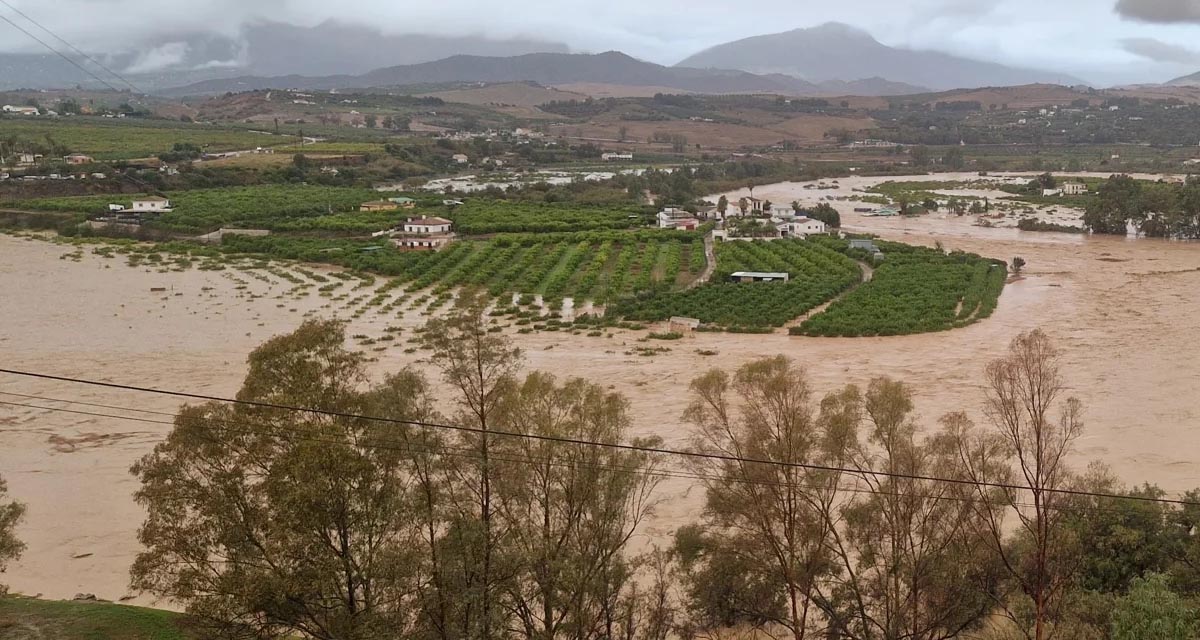
Boosting Climate Resilience: Wetland4Change Project Advances Flood Management Solutions for Mediterranean Coastal Zones
The Mediterranean coastal zone´s combination of multiple severe climate hazards – rising temperatures, water scarcity, sea-level rise, and extreme weather events – makes it a hotspot for highly interconnected climate risks for the ecosystems and societies. Recent catastrophic floods in ...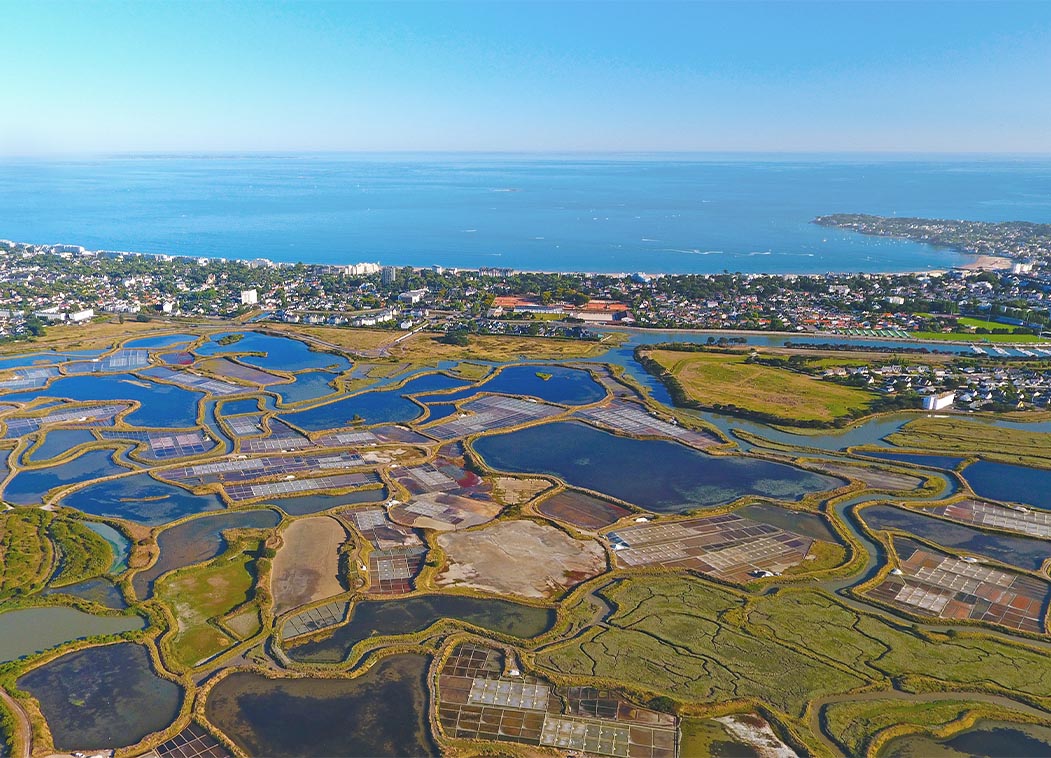
RESTORE4Cs 1st Policy Brief: How can coastal wetlands help achieve EU climate goals?
The first RESTORE4Cs Policy Brief of RESTORE4Cs, “How can coastal wetlands help achieve EU climate goals?“, highlights the importance of European coastal wetlands for reducing Greenhouse Gas emissions. The key messages of the first RESTORE4Cs Policy Brief include: Coastal wetlands are important natural carbon stores, ...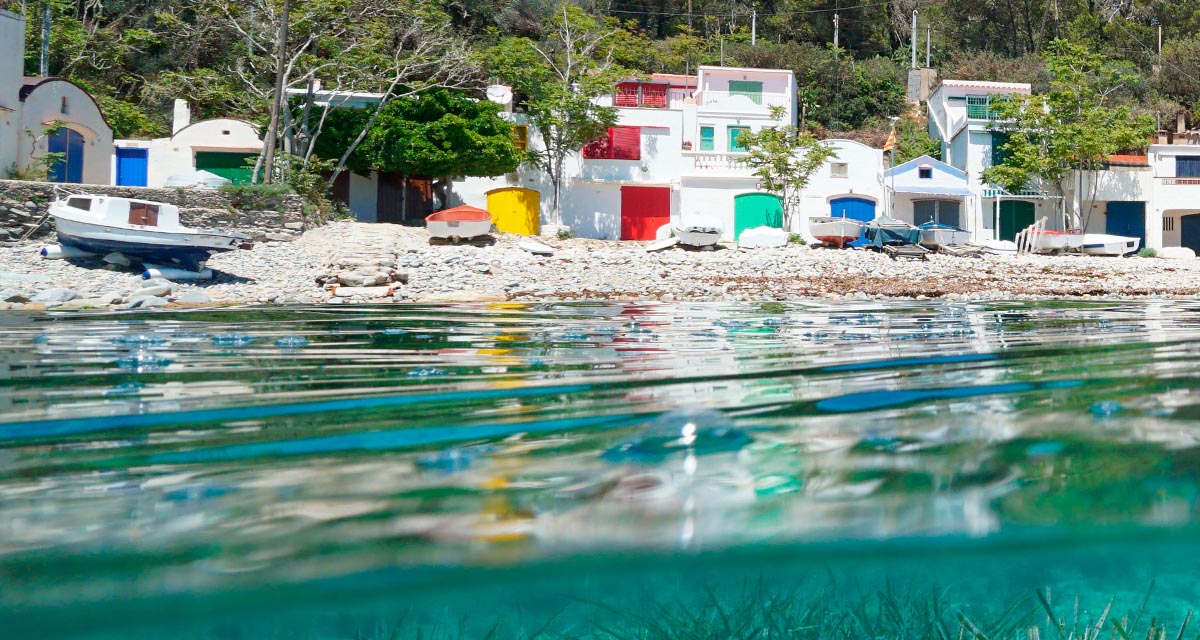
Mapping the Impact of Blue Tourism in the Mediterranean
The IUCN Centre for Mediterranean Cooperation with the support of ETC-UMA in the framework of the Blue Tourism Initiative, has released a comprehensive report entitled “Mapping the Impact of Blue Tourism in the Mediterranean: Vulnerability Assessment of Coastal and Marine ...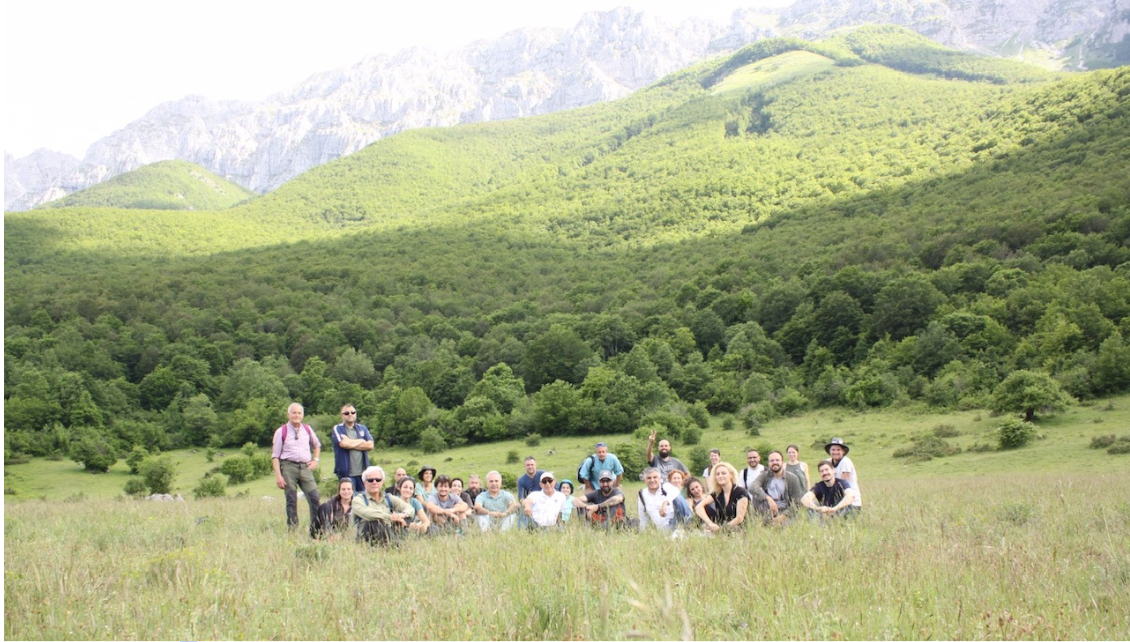
StrategyMedFor Presented at Annual Medforval Meeting 2024
StrategyMedFor was prominently featured at the Annual Medforval Meeting 2024, held from June 5-7 in Fontecchio, Italy. The event brought together 25 practitioners from national parks and natural reserves across 9 Mediterranean countries, providing a valuable platform for StrategyMedFor to ...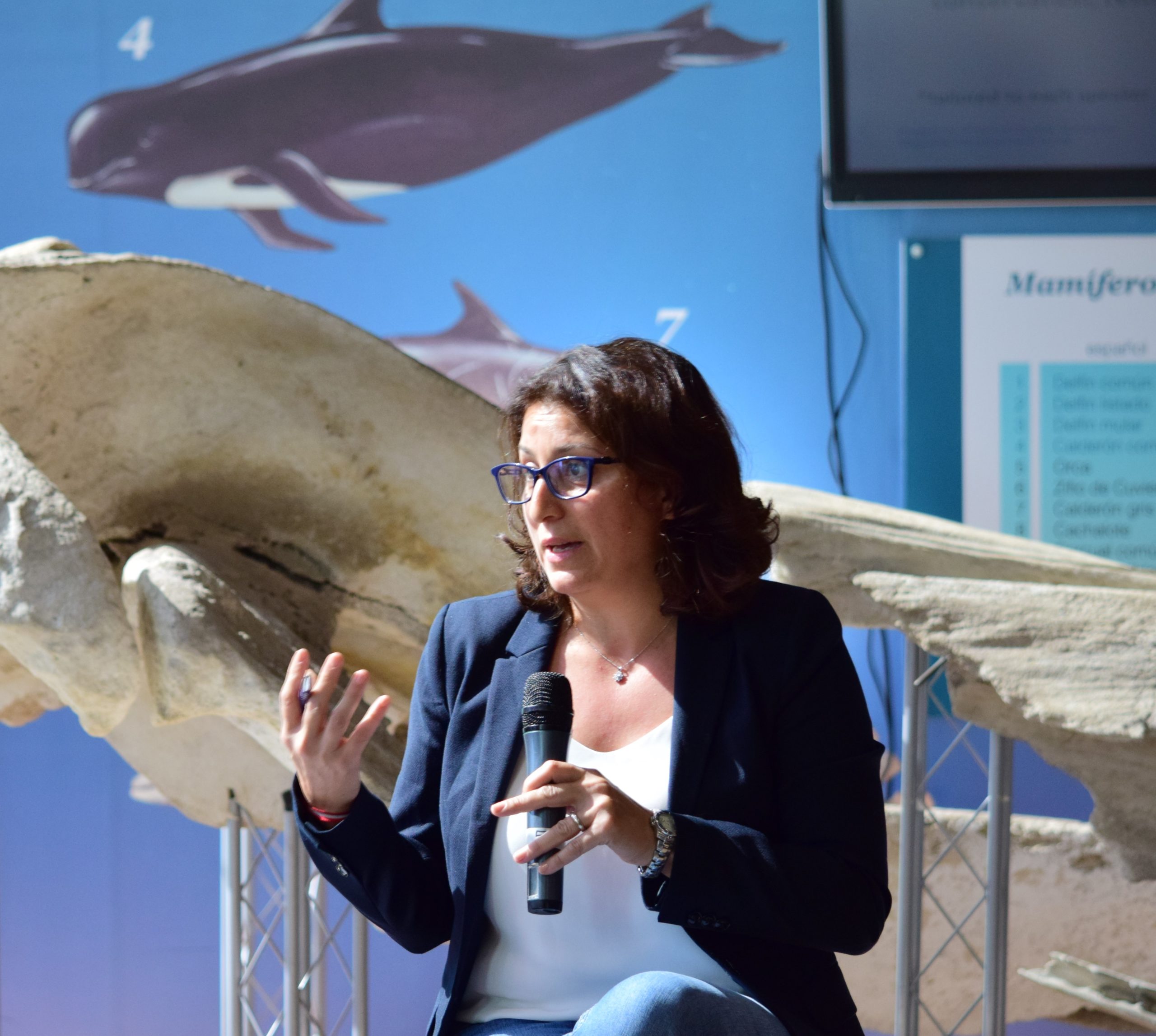
Celebrating leadership in environmental management: an interview with Dania Abdul Malak
From designing integrated ecosystem assessments in Europe and the Mediterranean to transforming outcomes into evidence-based recommendations for regional stakeholders, the European Topic Centre on Spatial Analysis and Synthesis (ETC-UMA) stands as a flagship for territorial cooperation. At the forefront of ...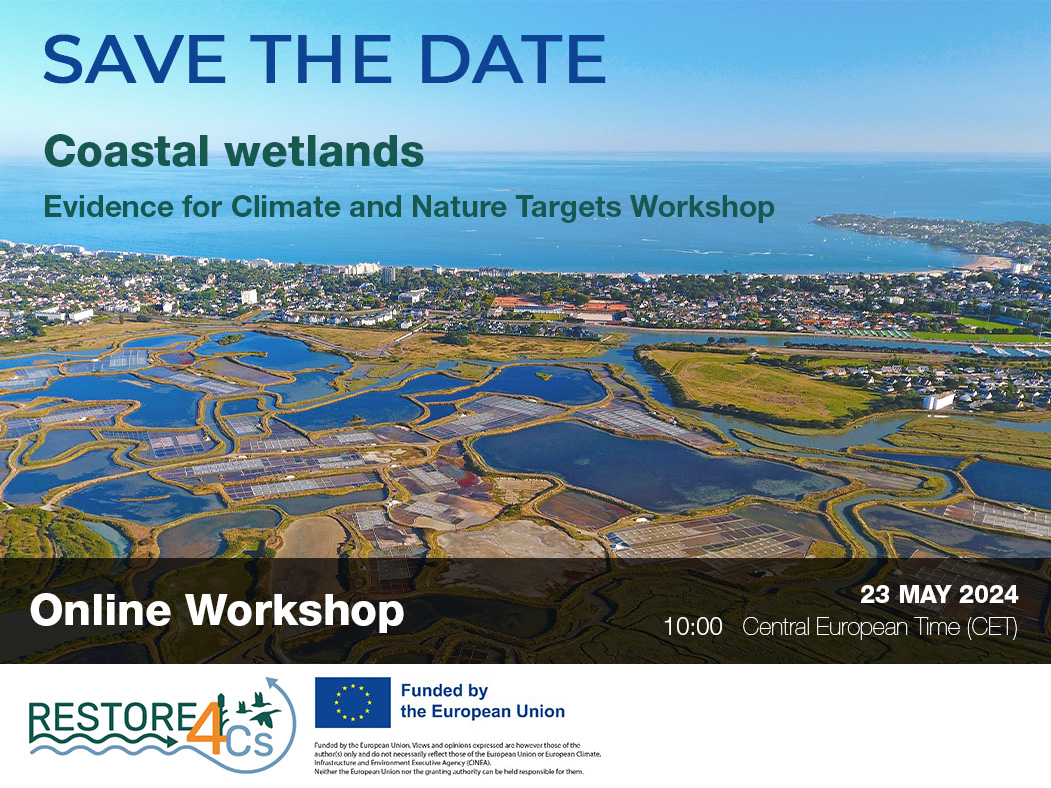
Save the date! Unlocking solutions for coastal conservation in Europe
How can coastal wetlands respond to major European Union objectives such as climate neutrality, biodiversity protection, and pollution reduction? What key role do coastal wetlands play in achieving EU commitments for climate mitigation and biodiversity conservation? The European Topic Centre ...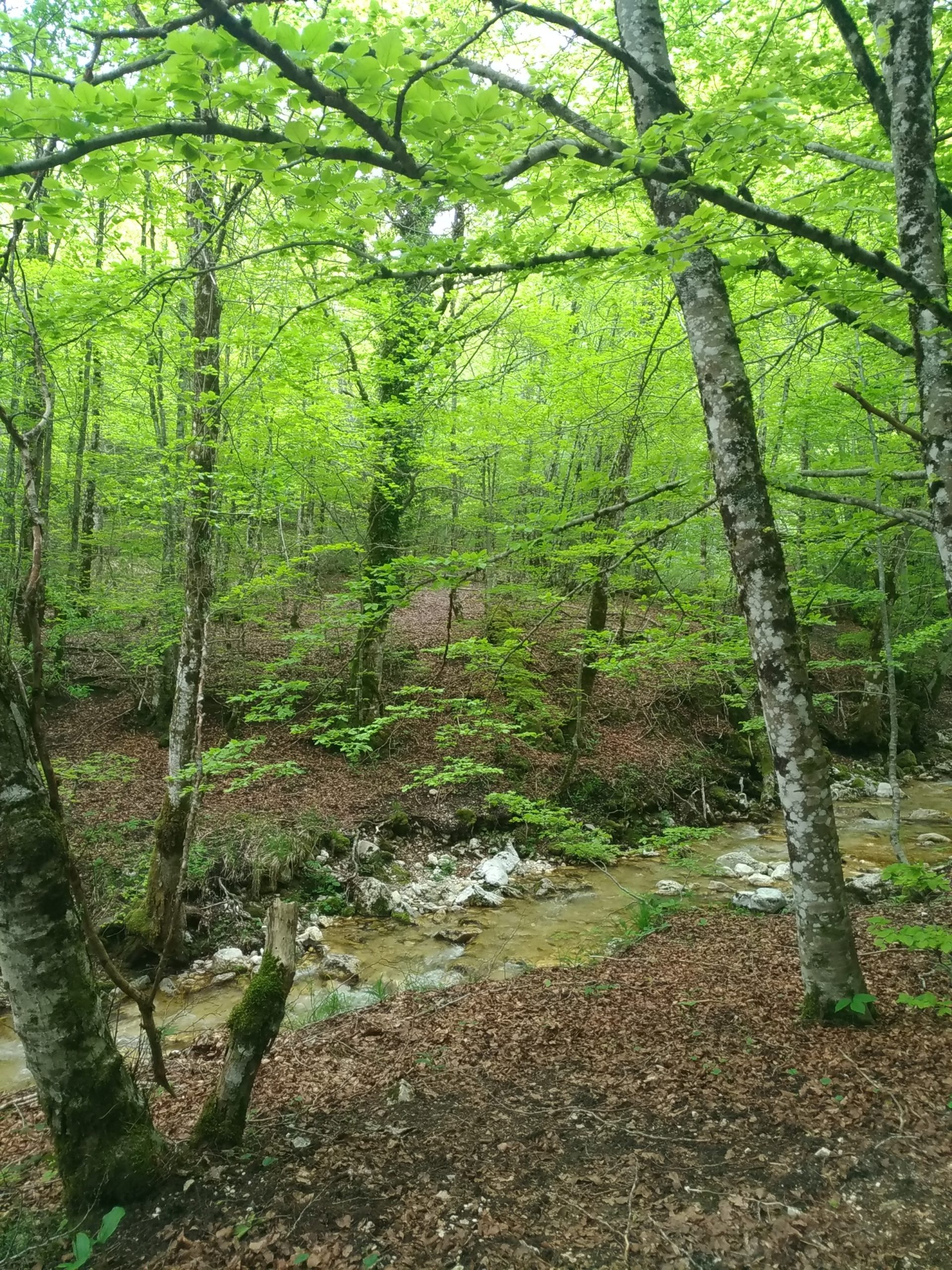
Towards a Strategy for the Sustainable Management of Mediterranean Forests (StrategyMedFor)
The StrategyMedFor project, co-financed by the Interreg Euro-MED programme, was launched at the University of Malaga during a two day meeting that took place on March 18 and 19, 2024. The European Topic Centre on Spatial Analysis and Synthesis (ETC-UMA), ...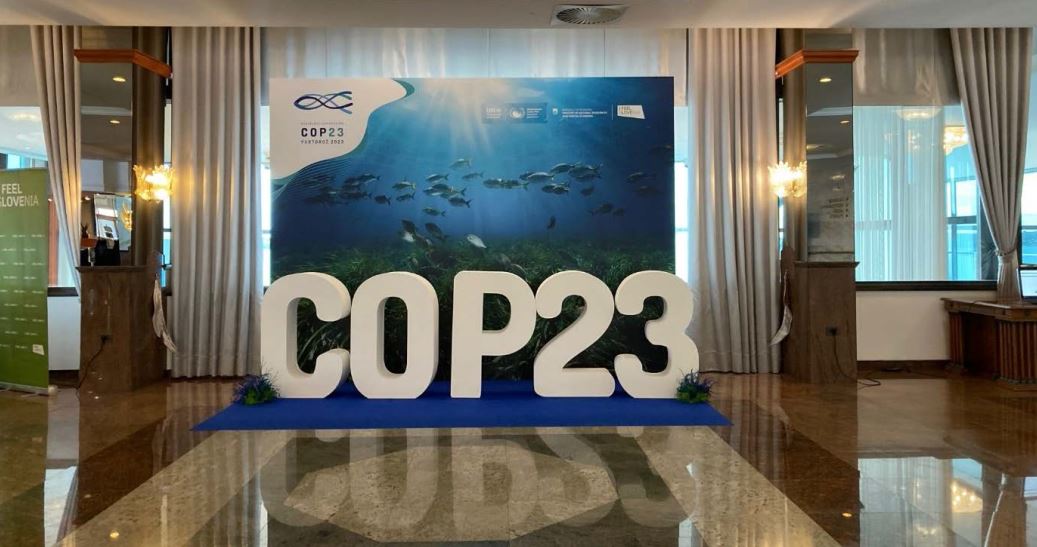
Collaborative science for forests by ETC-UMA showcased in Slovenia during the COP23
As UNEP MAP partner organization, ETC-UMA recently engaged in the organization of a session with Mediterranean institutions under the topic of climate change, entitled: From COASTAL to FOREST ecosystems: Mediterranean Nature-based Solutions to tackle climate change and ensure the Resilience ...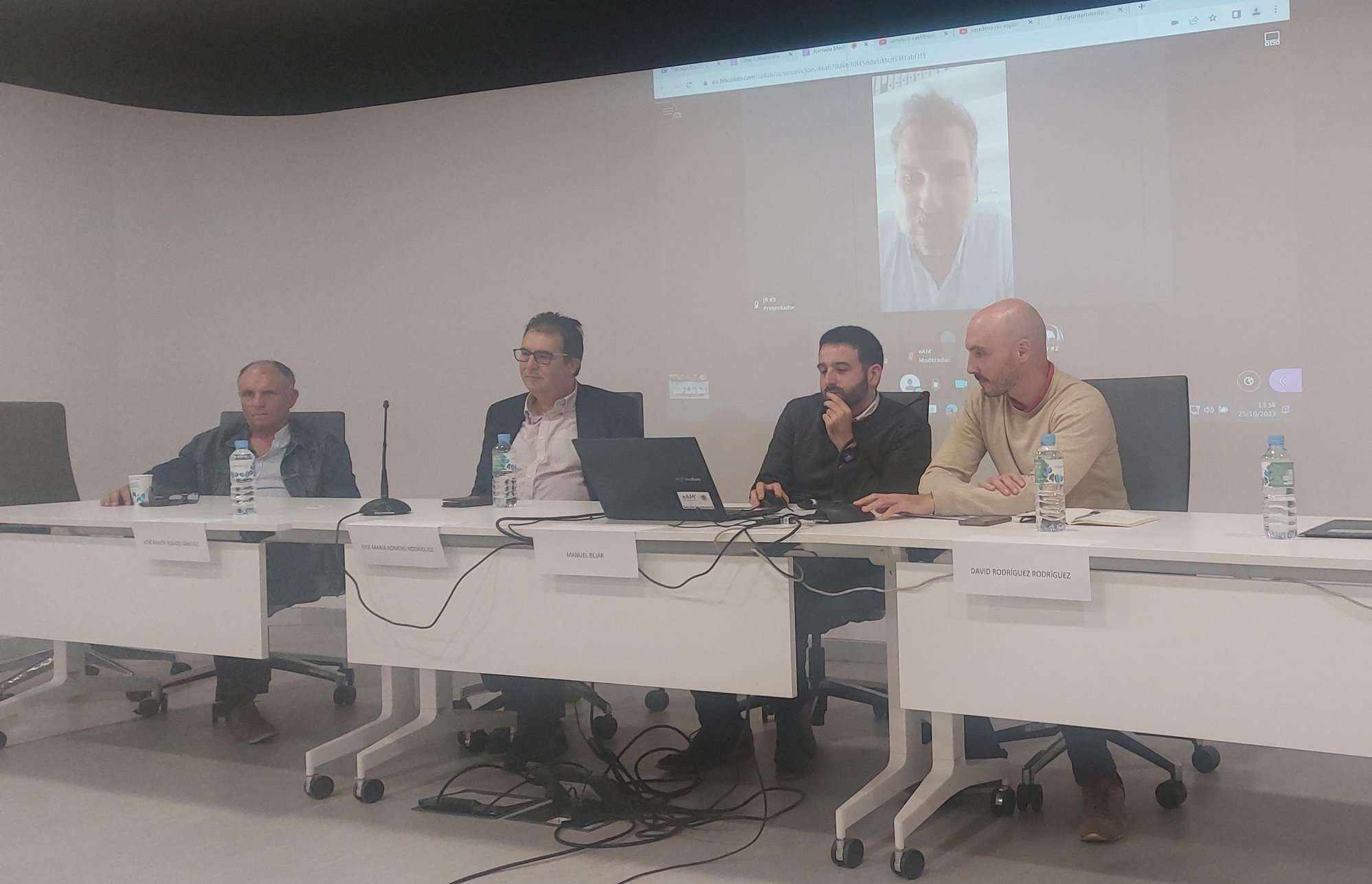
Tools for conserving the Spanish coast
On the initiative of the Instituto Universitario Hábitat Territorio y Digitalización (iHTD) of the University of Malaga, around 70 representatives of Spanish public administrations, researchers, architecture and environmental science players and civil society signed up to the second debate on ...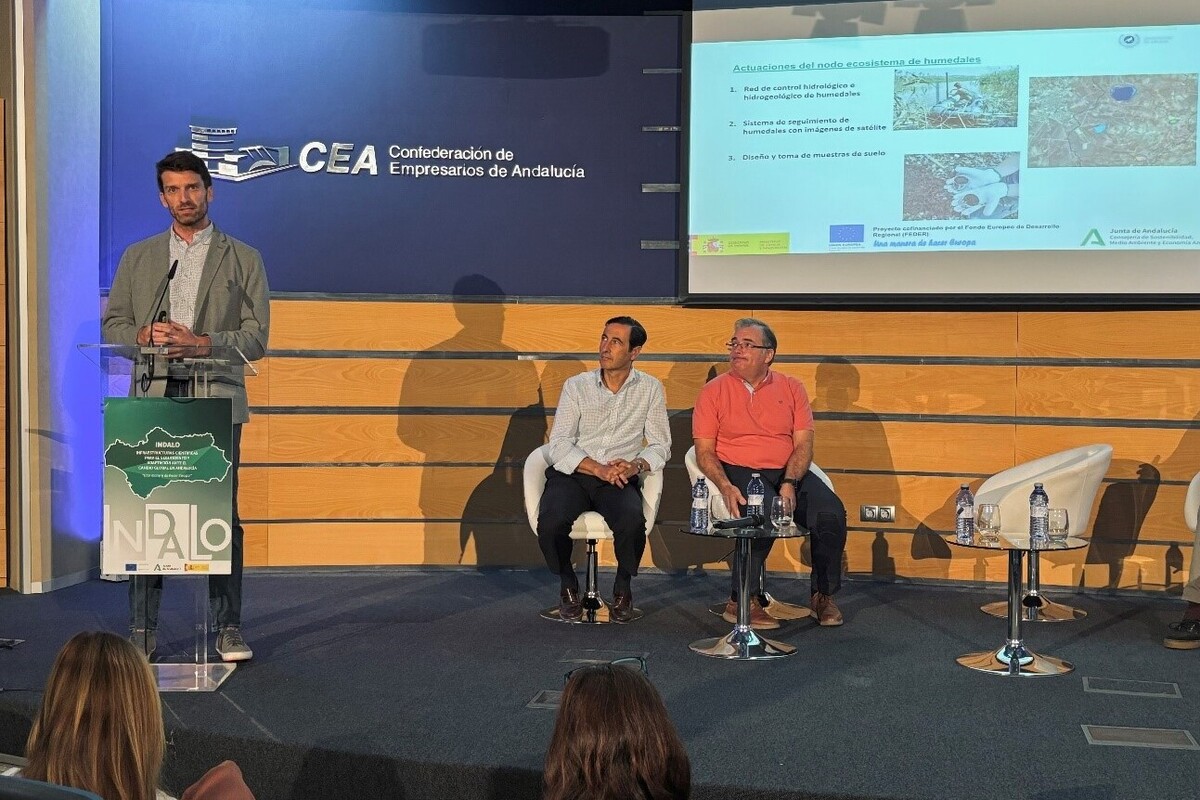
GreenEye System: a cloud-based system to monitor wetlands in Andalusia
Developed in the frame of the LifeWatch INDALO project cofinanced by the European Regional Development Fund (ERDF) for the study of biodiversity and global change in Andalucia, GreenEye System, this new cloud-based monitoring system, provides useful tools for wetlands’ assessment, ...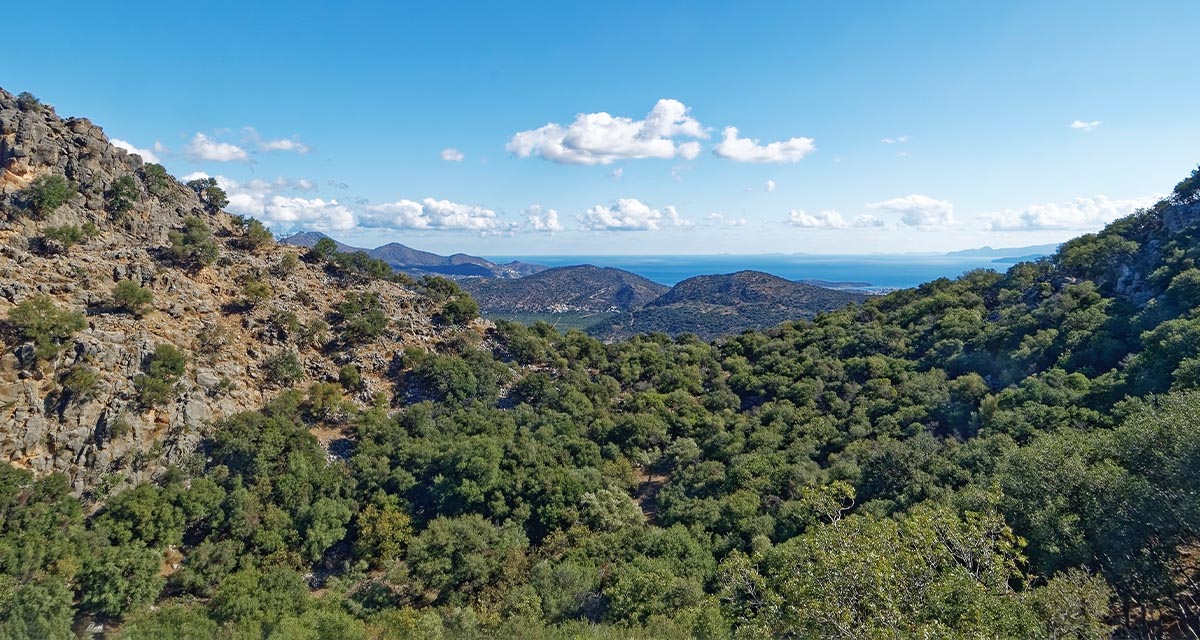
Looking back and forth to Mediterranean Forests
Timely published to enrich the knowledge available to fight fires and climate change challenges after an extremely hot summer, the proceedings of the Seventh Mediterranean Forest Week “Forest and Ecosystem Restoration for the next Mediterranean Generations” held from 21 to ...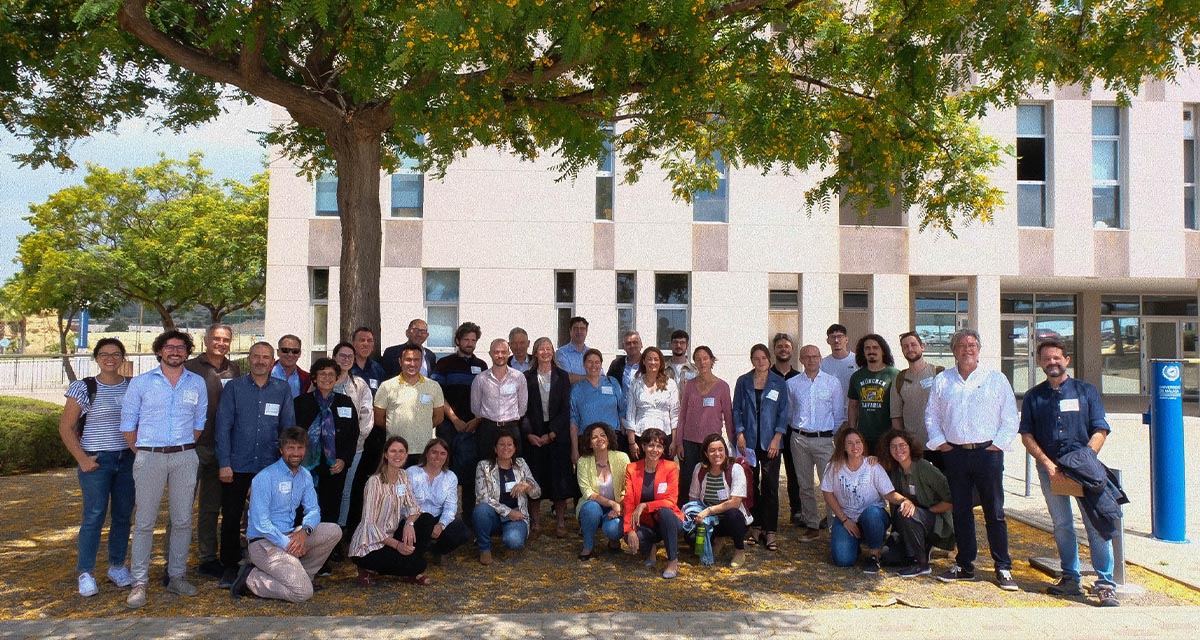
More space for innovative Mediterranean forest data partnerships
The report entitled A knowledge baseline on Mediterranean forests supported by innovation launched in July by ETC-UMA provides a highlight of what Mediterranean countries and institutions are doing to integrate new digital, satellite and Artificial Intelligence technologies into forest monitoring ...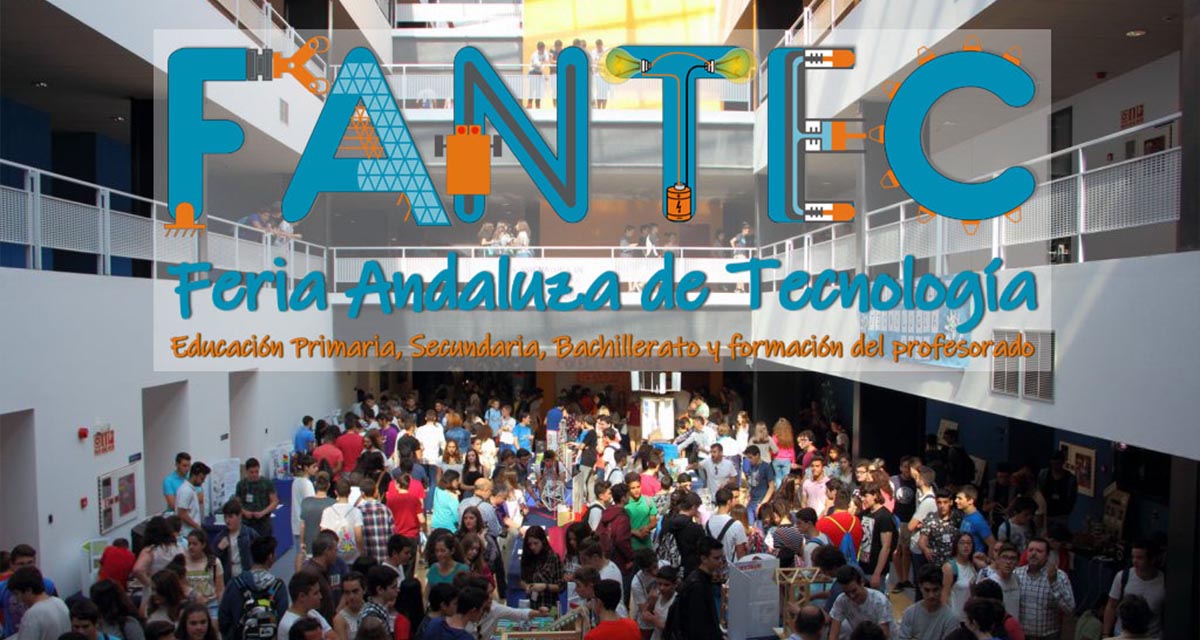
The Earth from Space shown by ETC-UMA at FANTEC 2023
Students from 80 centers from all over Andalusia came together on Friday 19 May 2023 at the High School of Industrial Engineering of the University of Malaga to participate, one more year, in the Andalusian Technology Fair 2023. Antonio Sanchez ...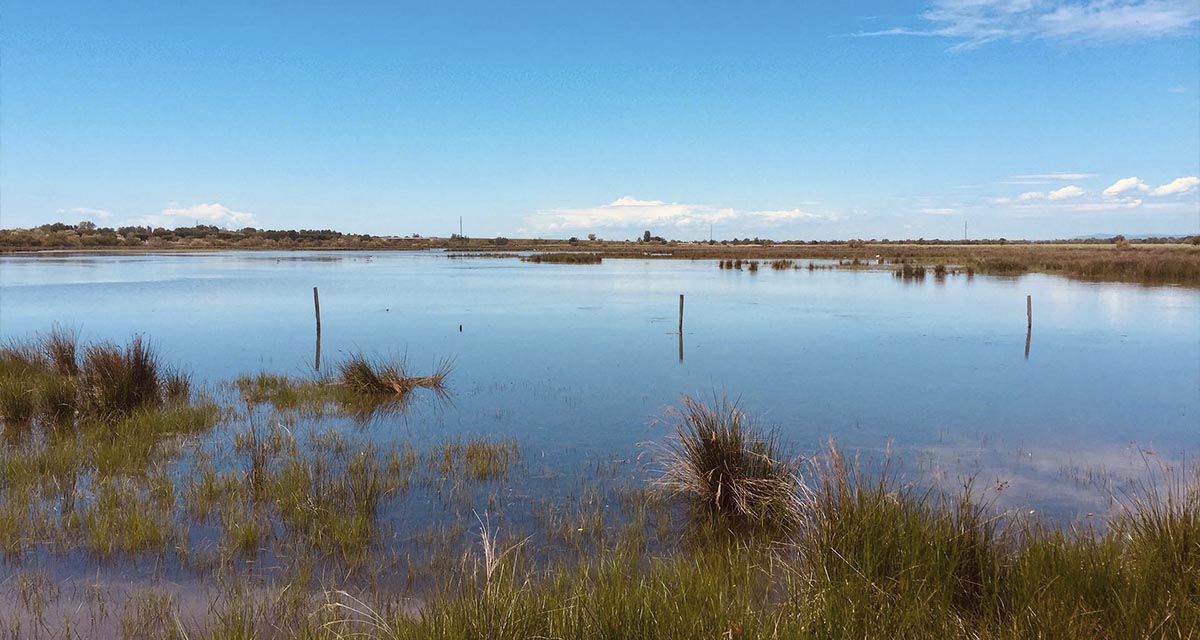
ETC-UMA launches new technologies applied to ecosystem knowledge
Built on the Google Earth Engine cloud computing platform, the new wetland monitoring system based on remote sensing data, developed by ETC-UMA and presented in April 2023 at the National Centre for Environmental Education (CENEAM by its acronym in Spanish) ...